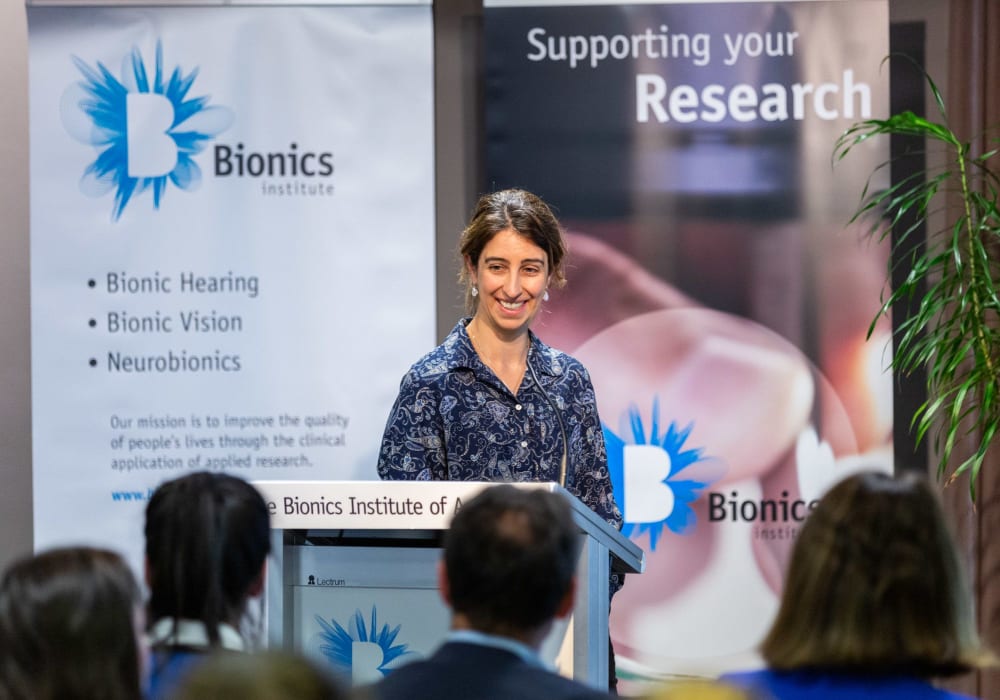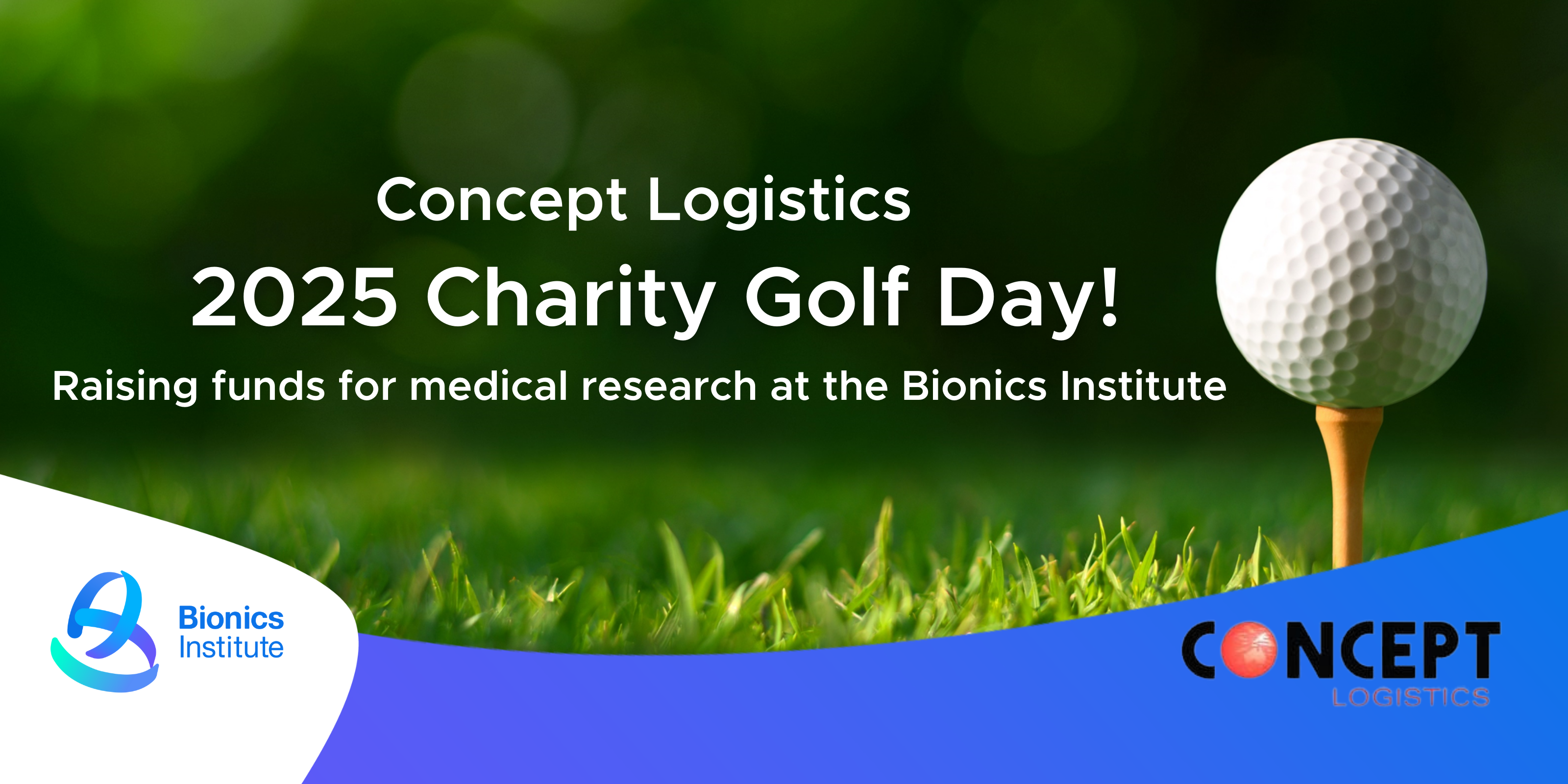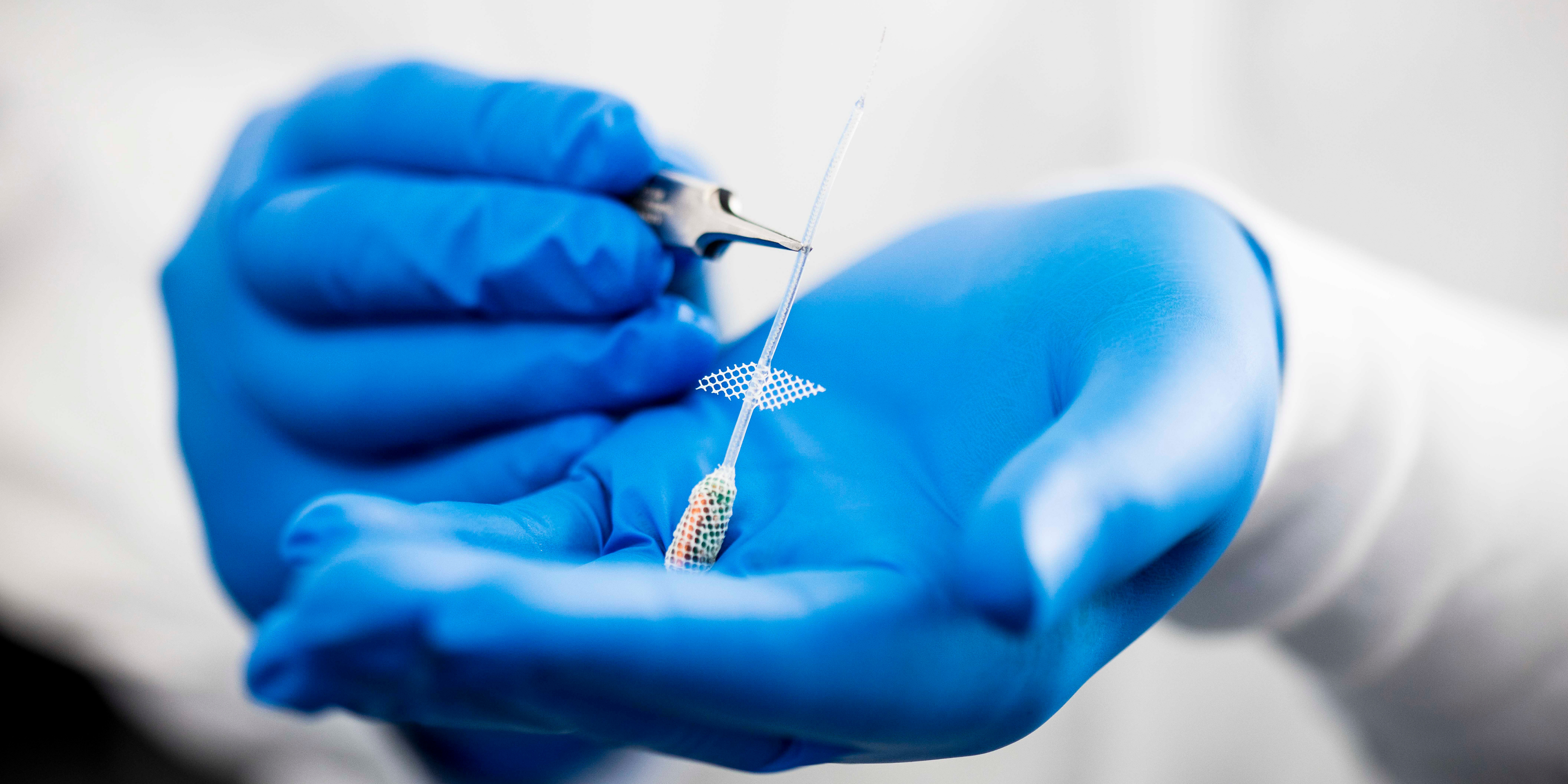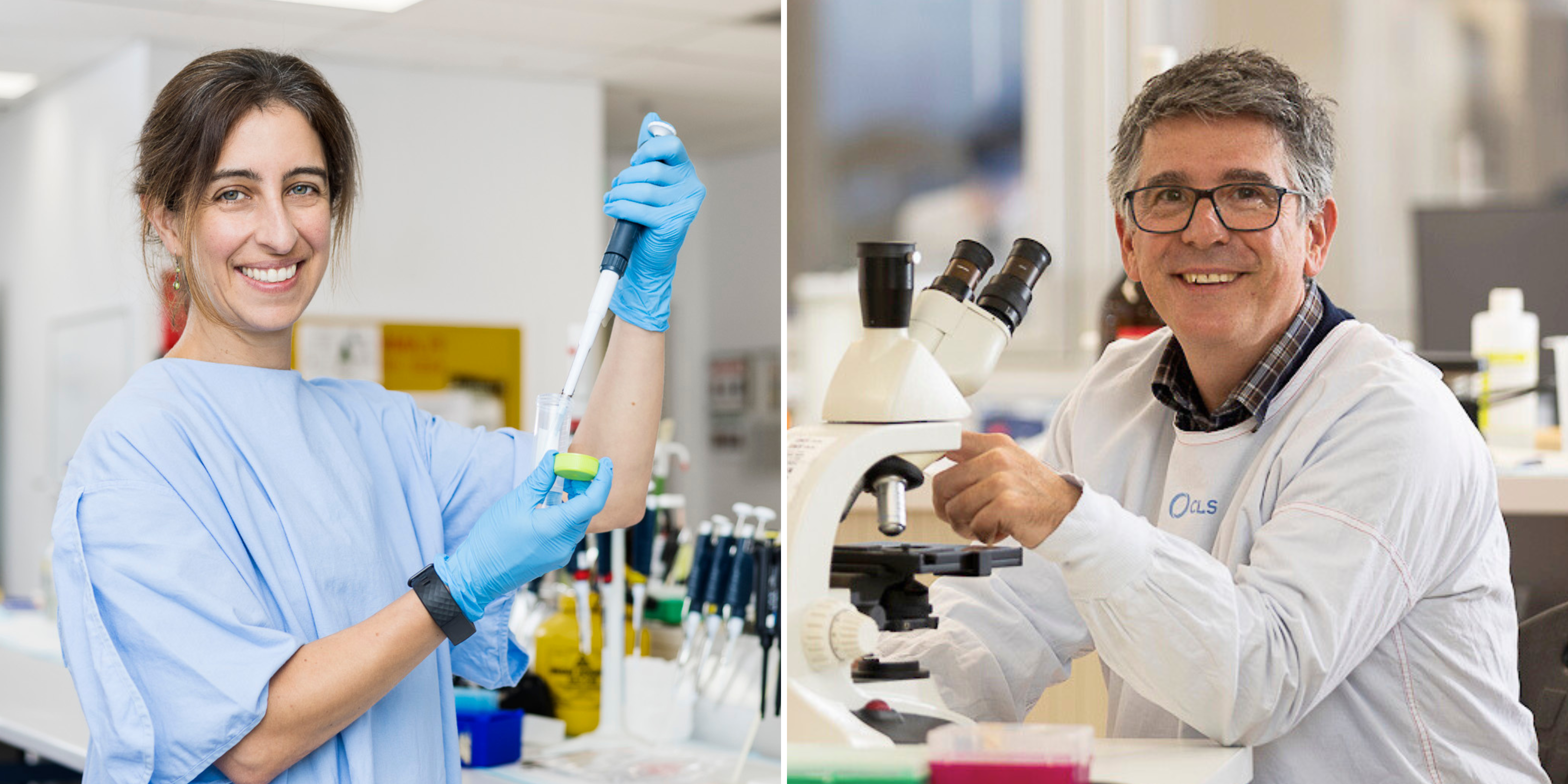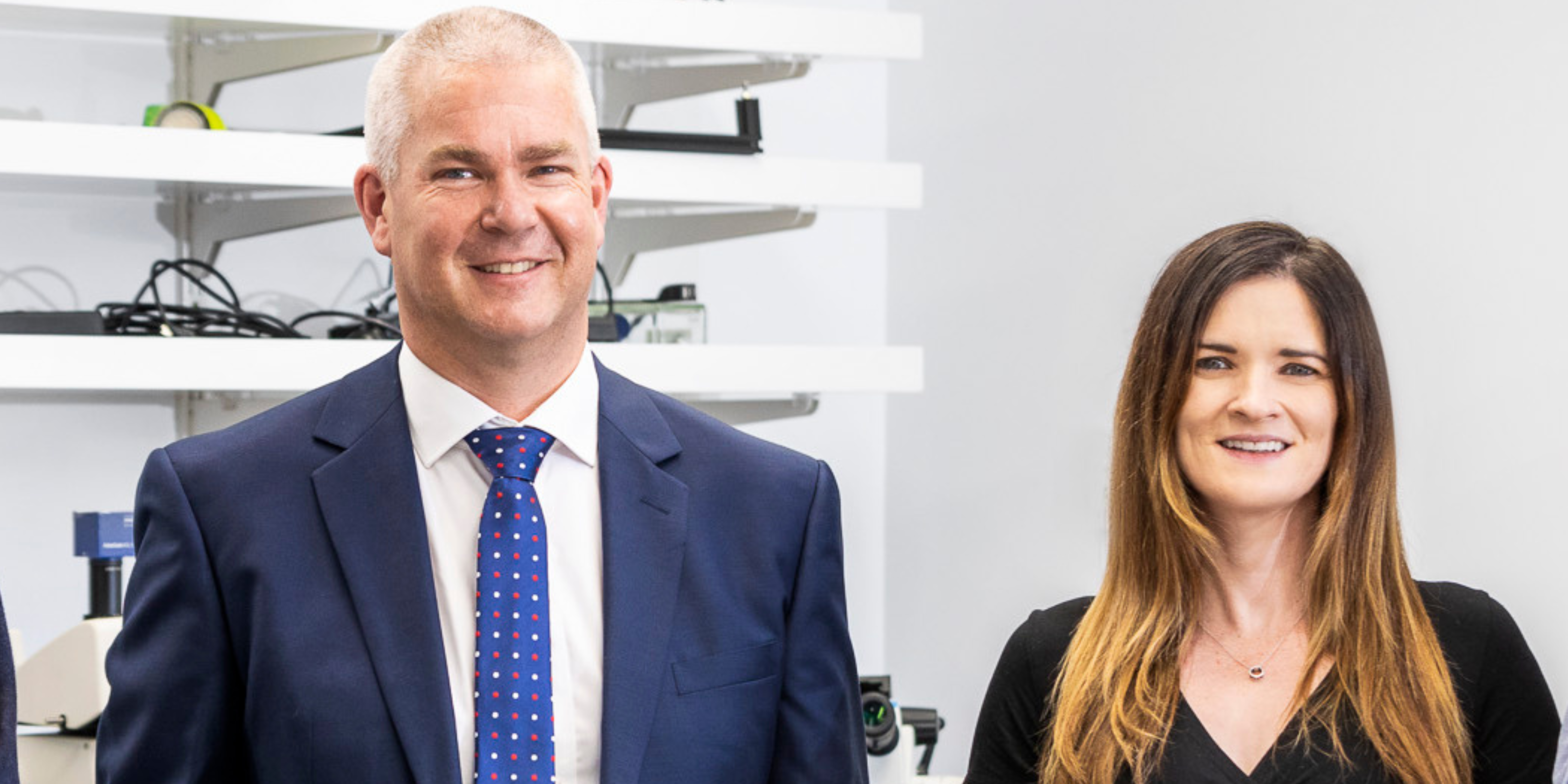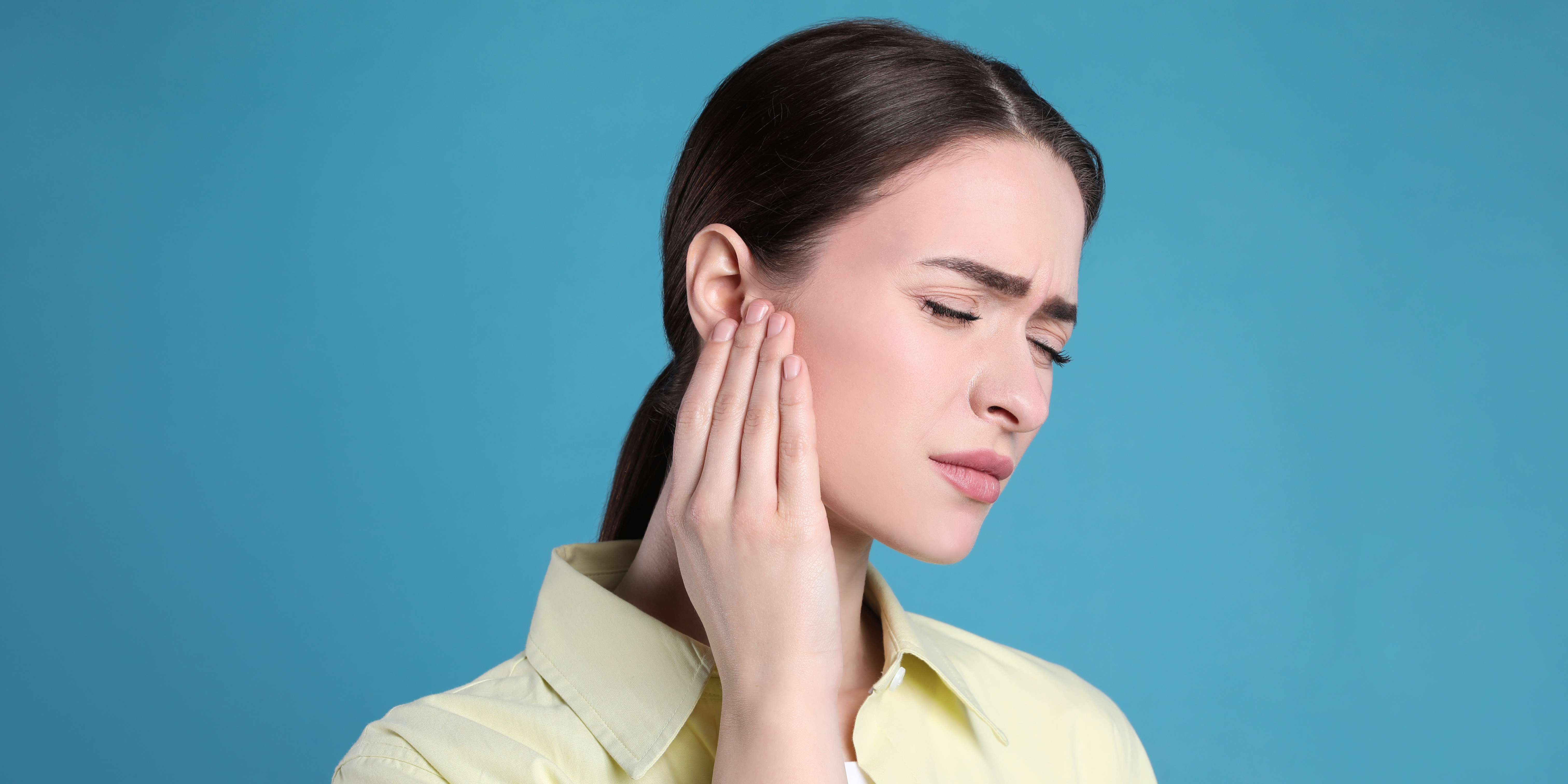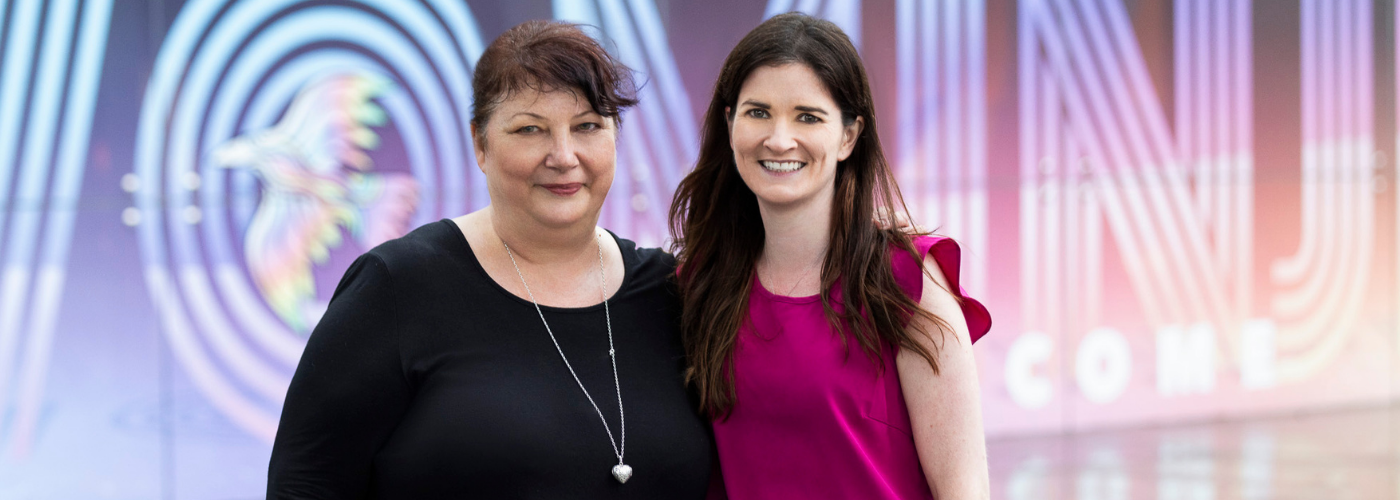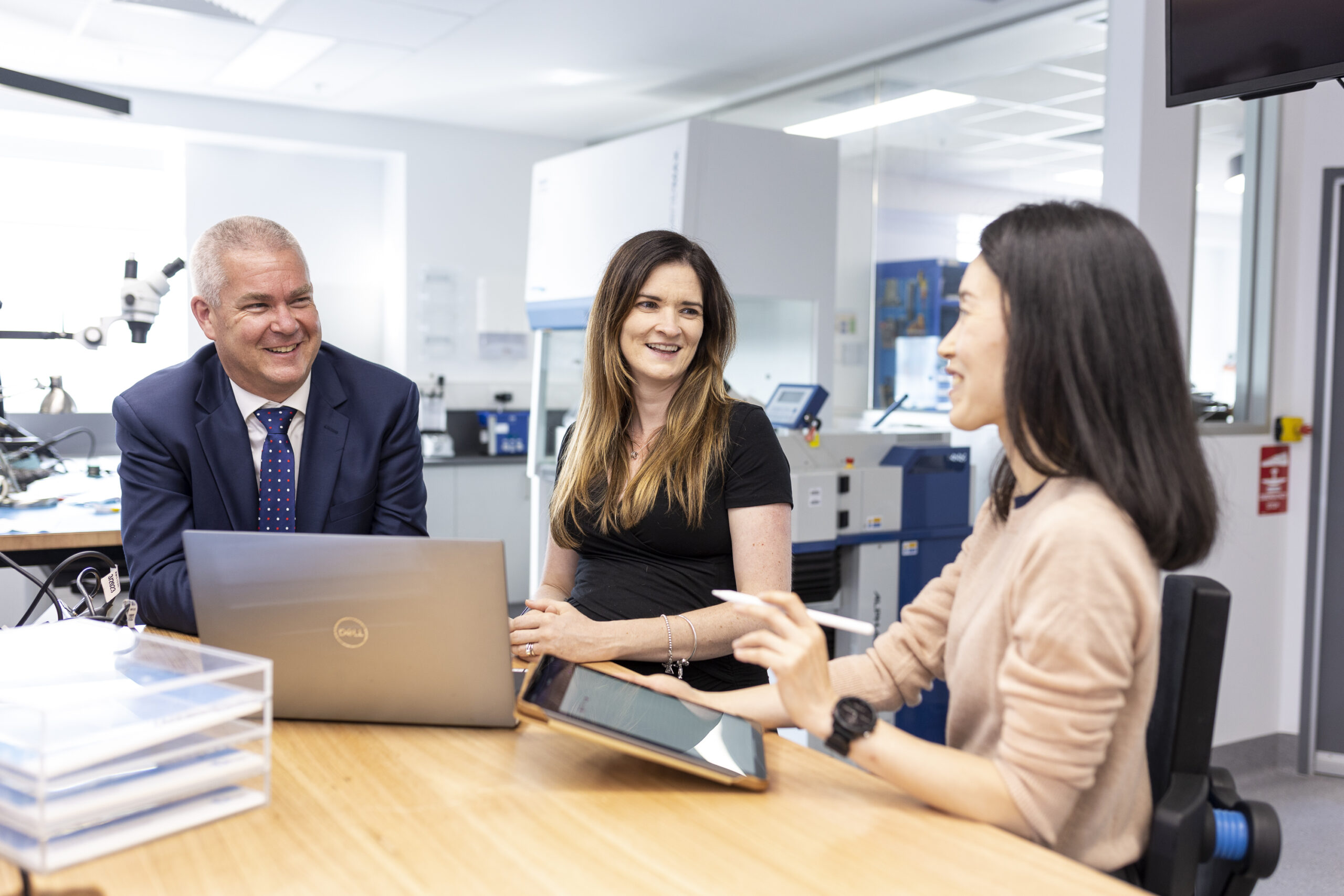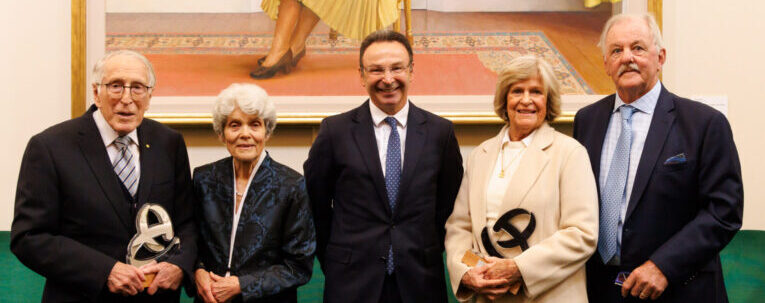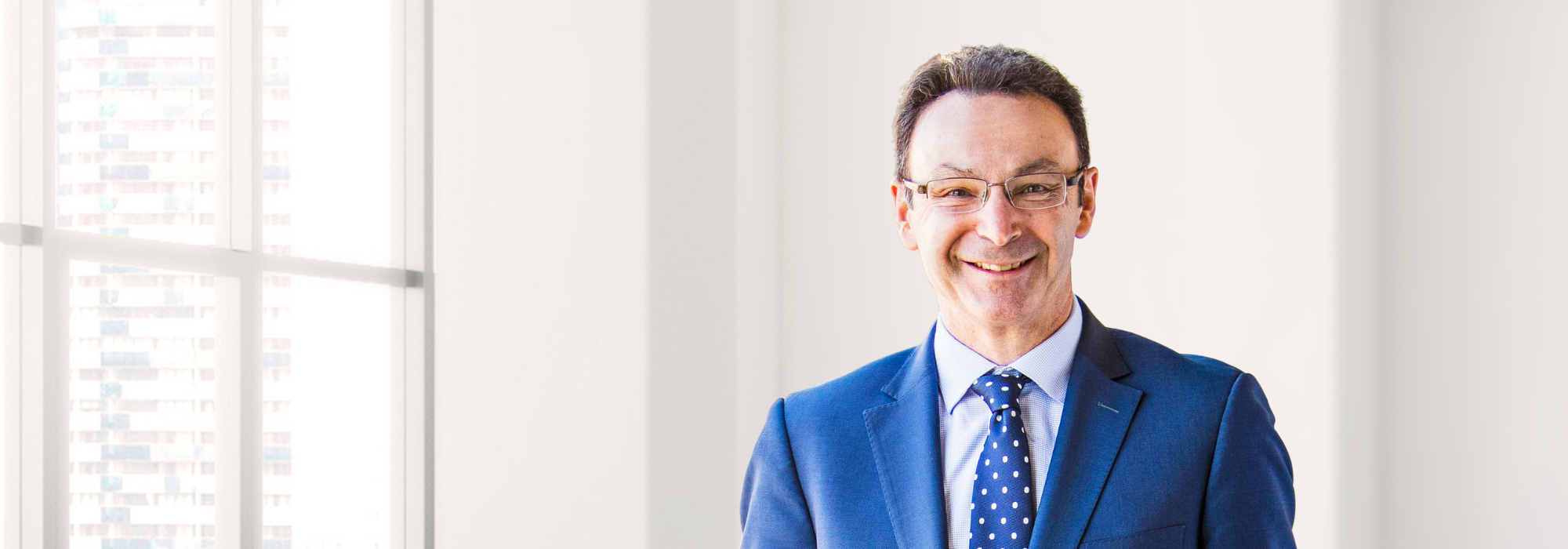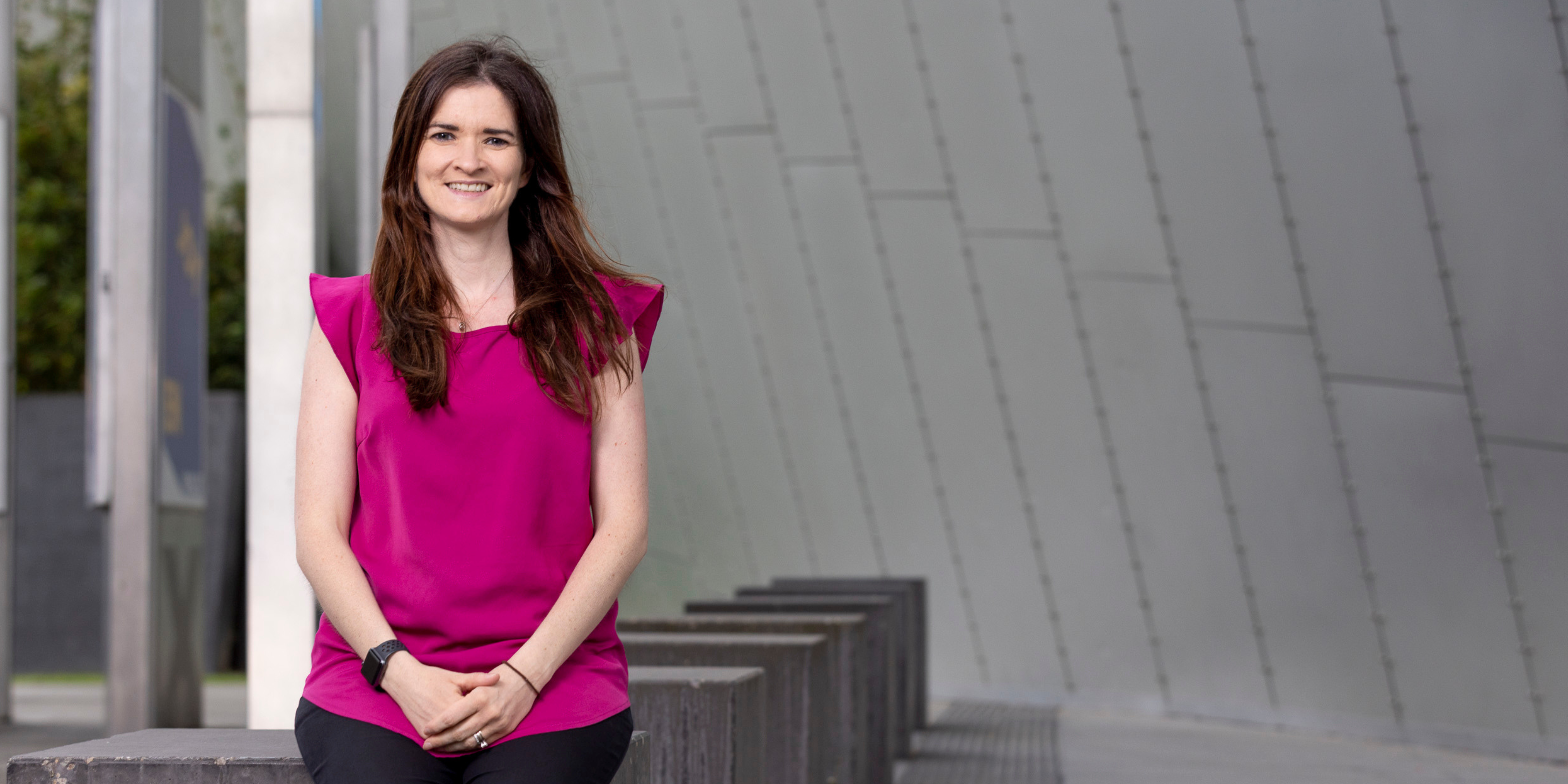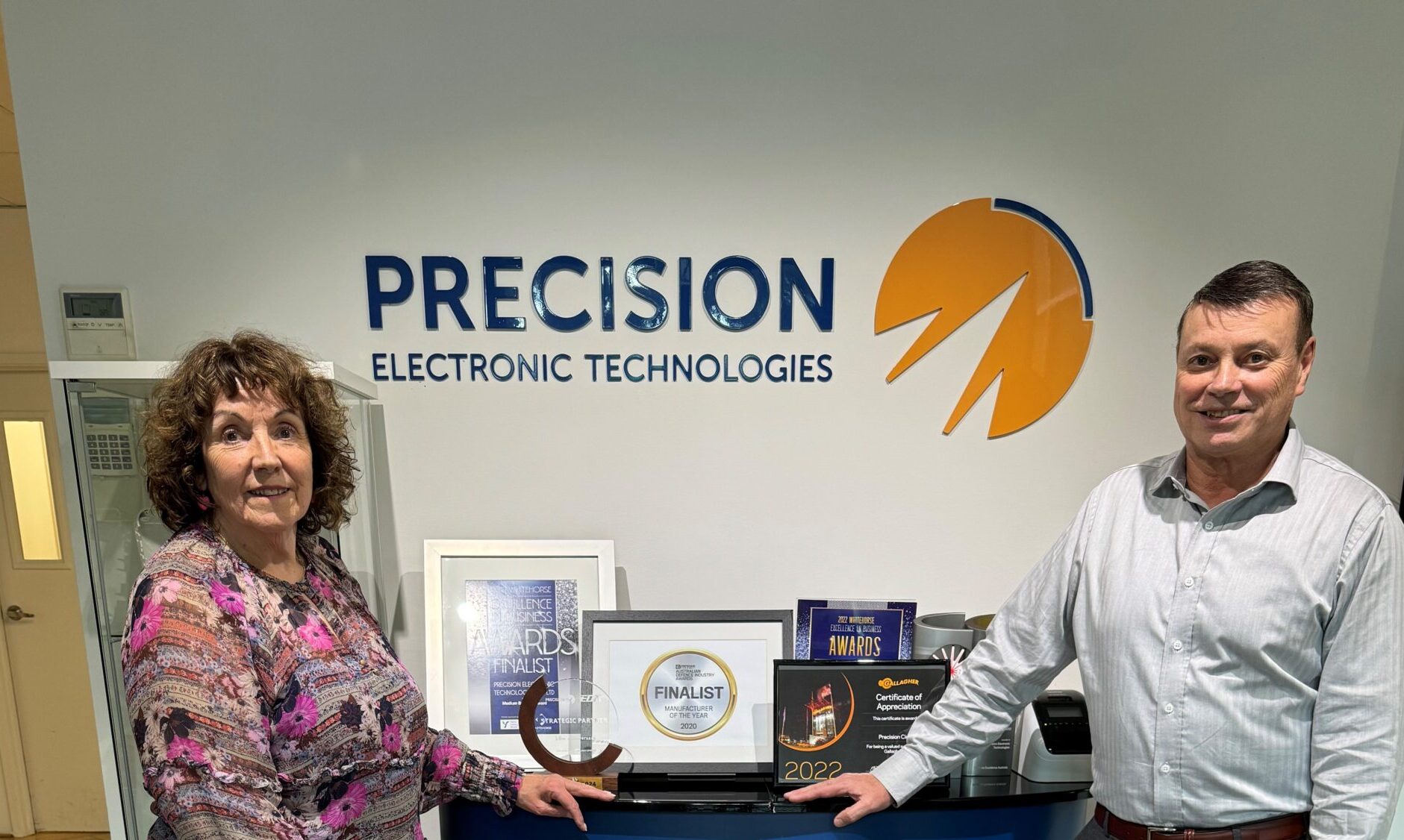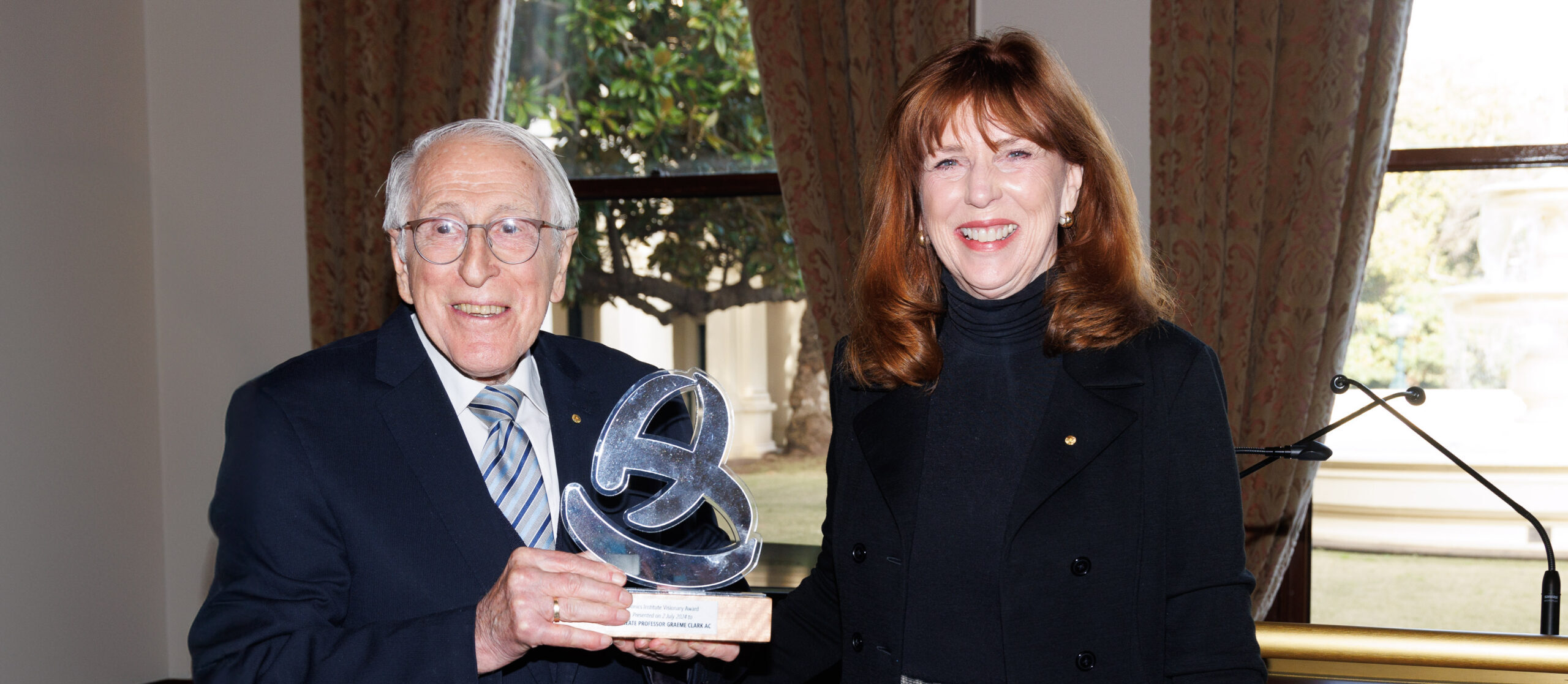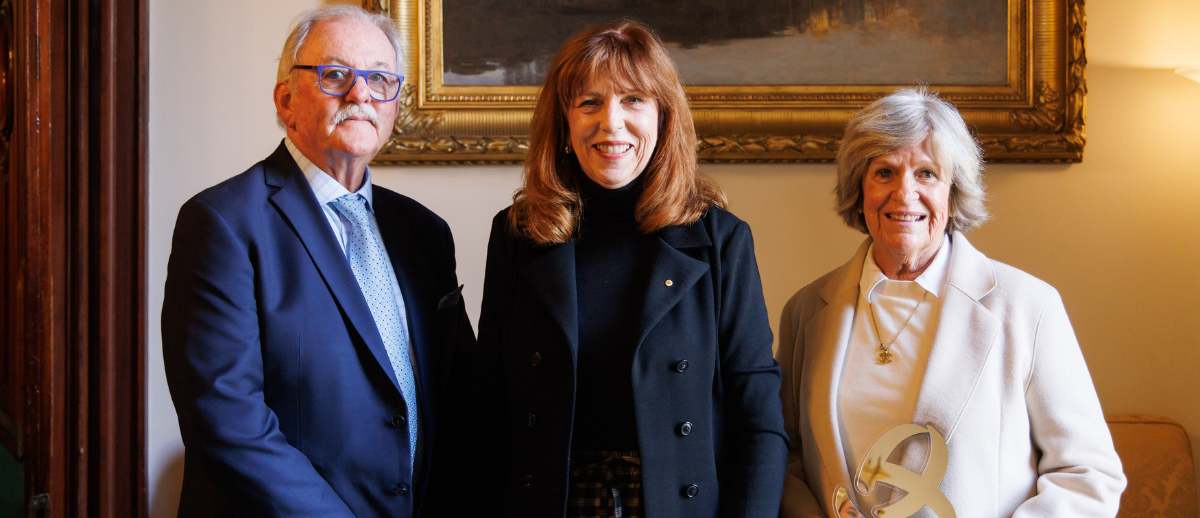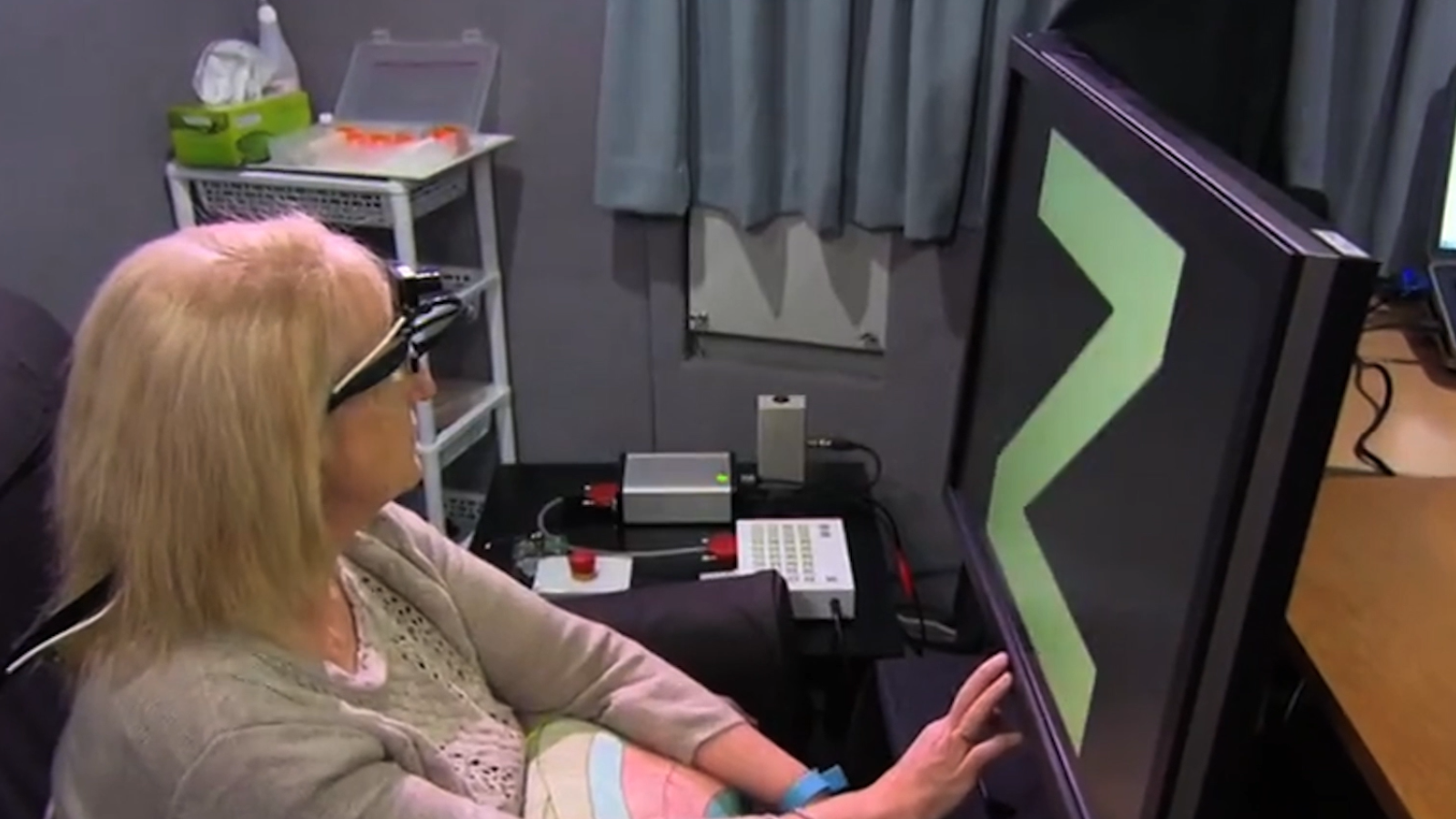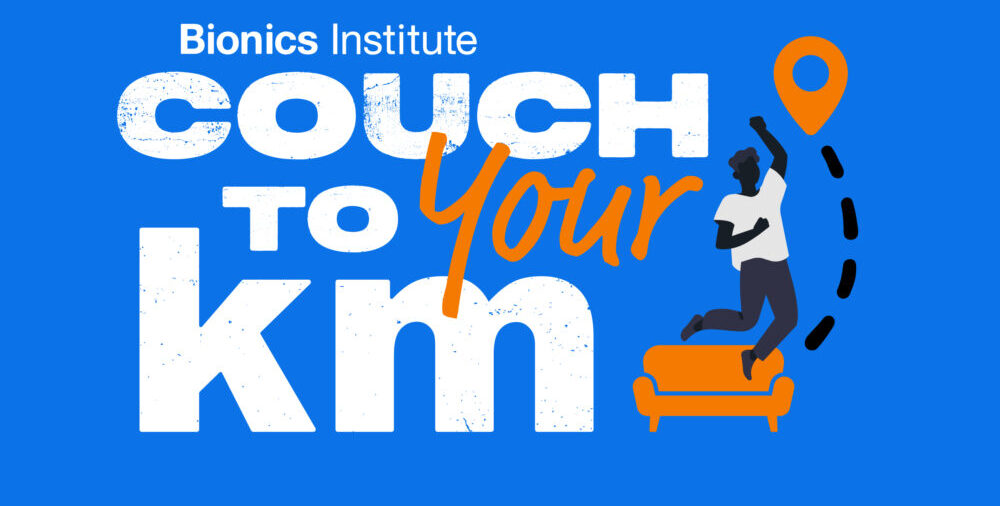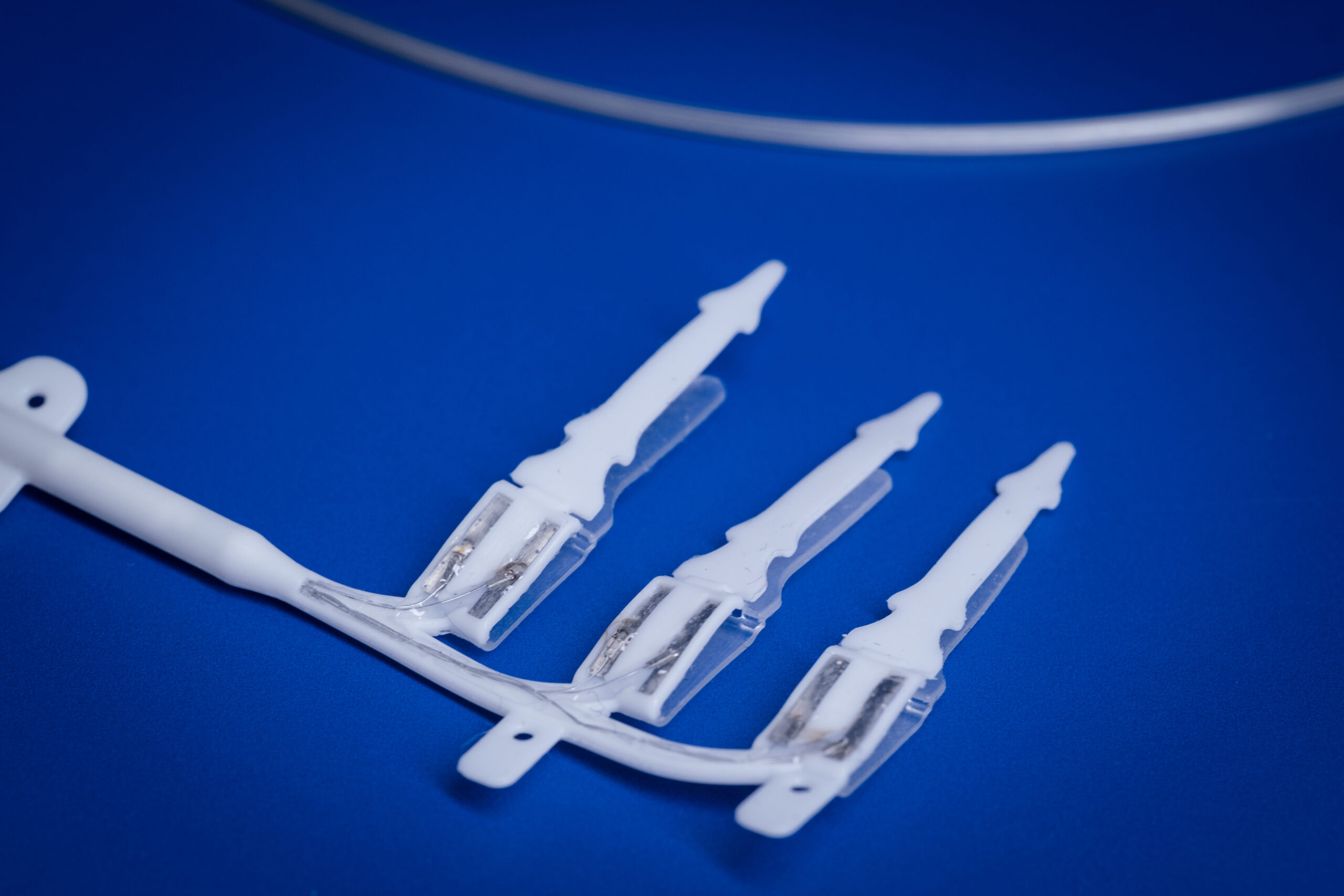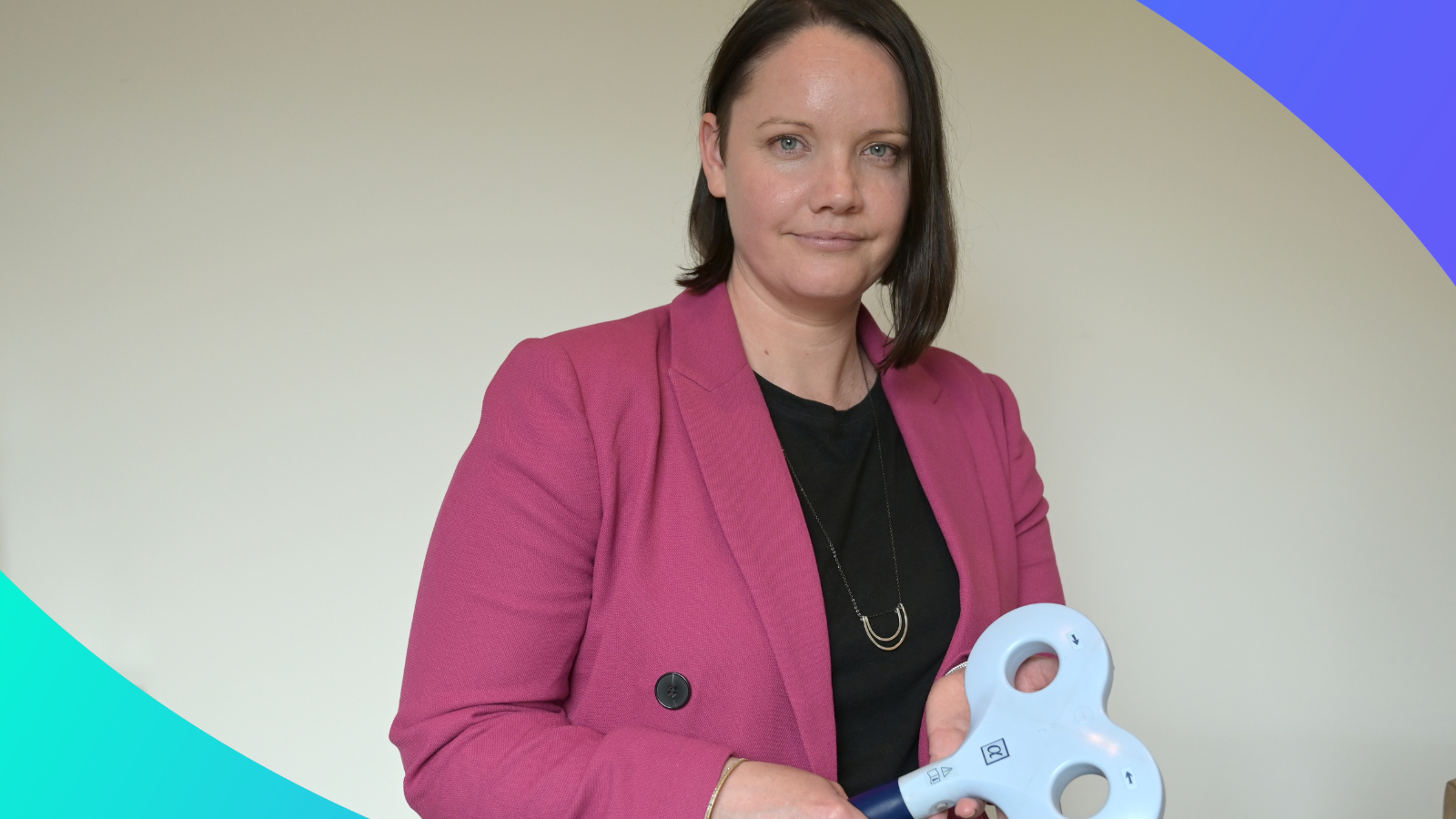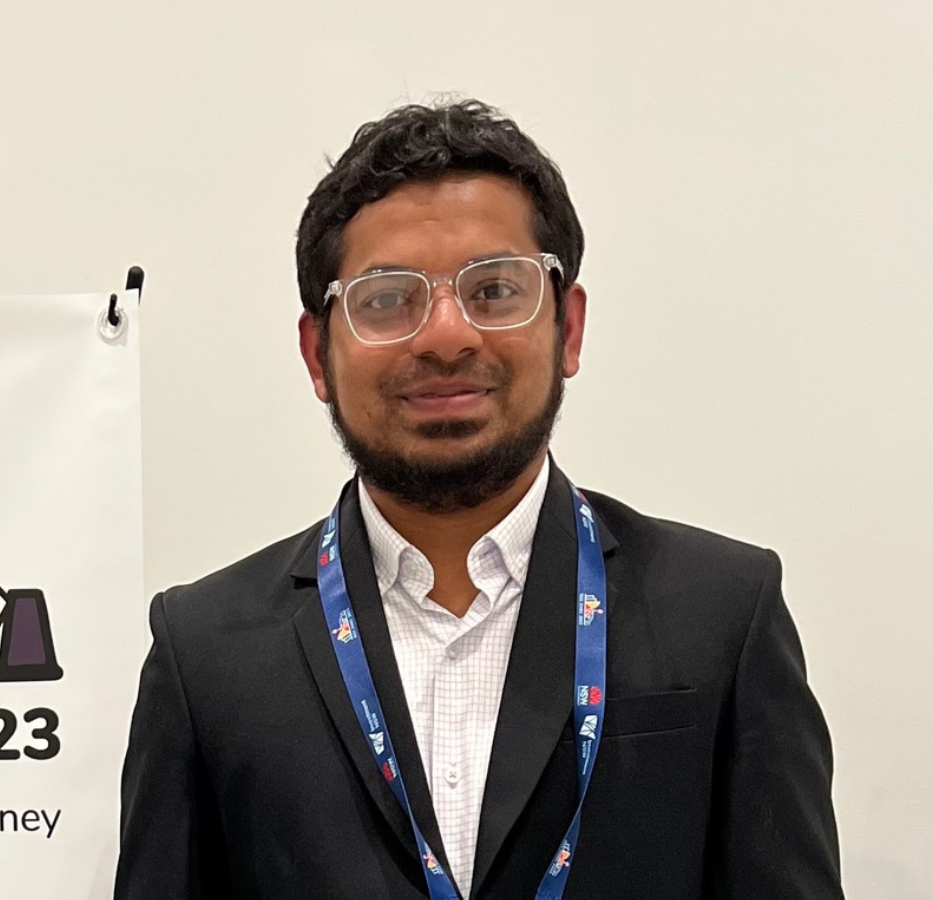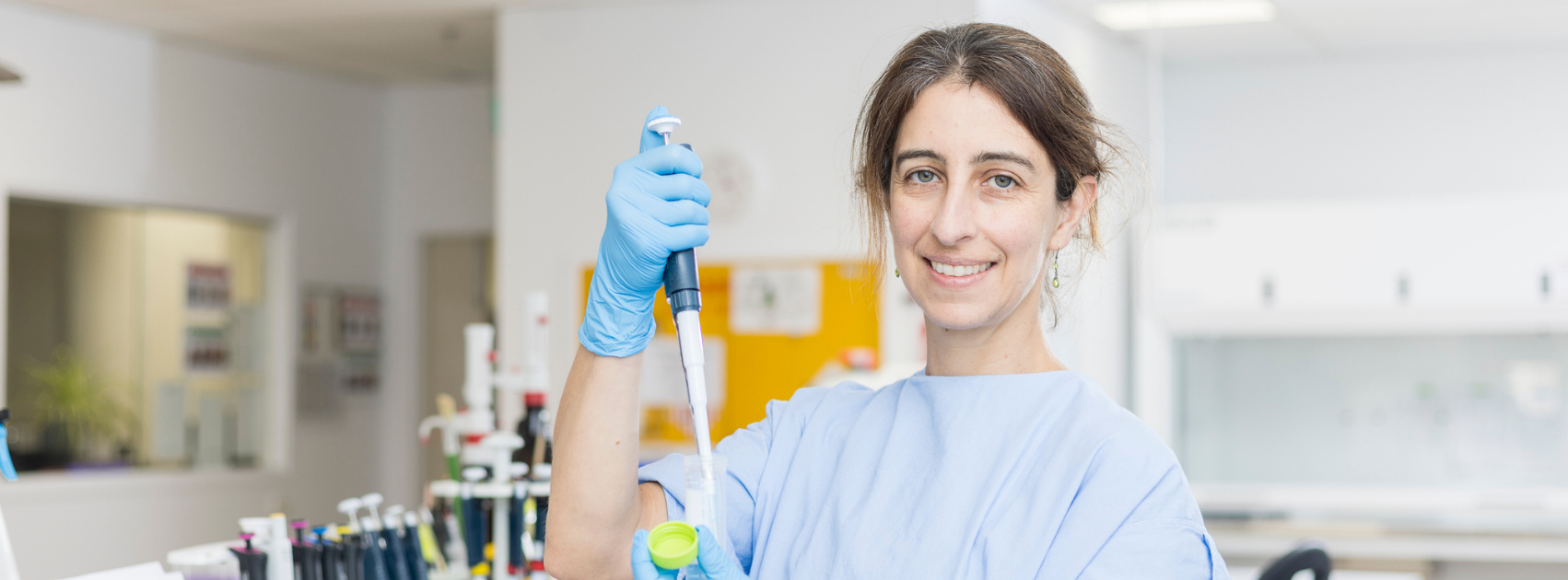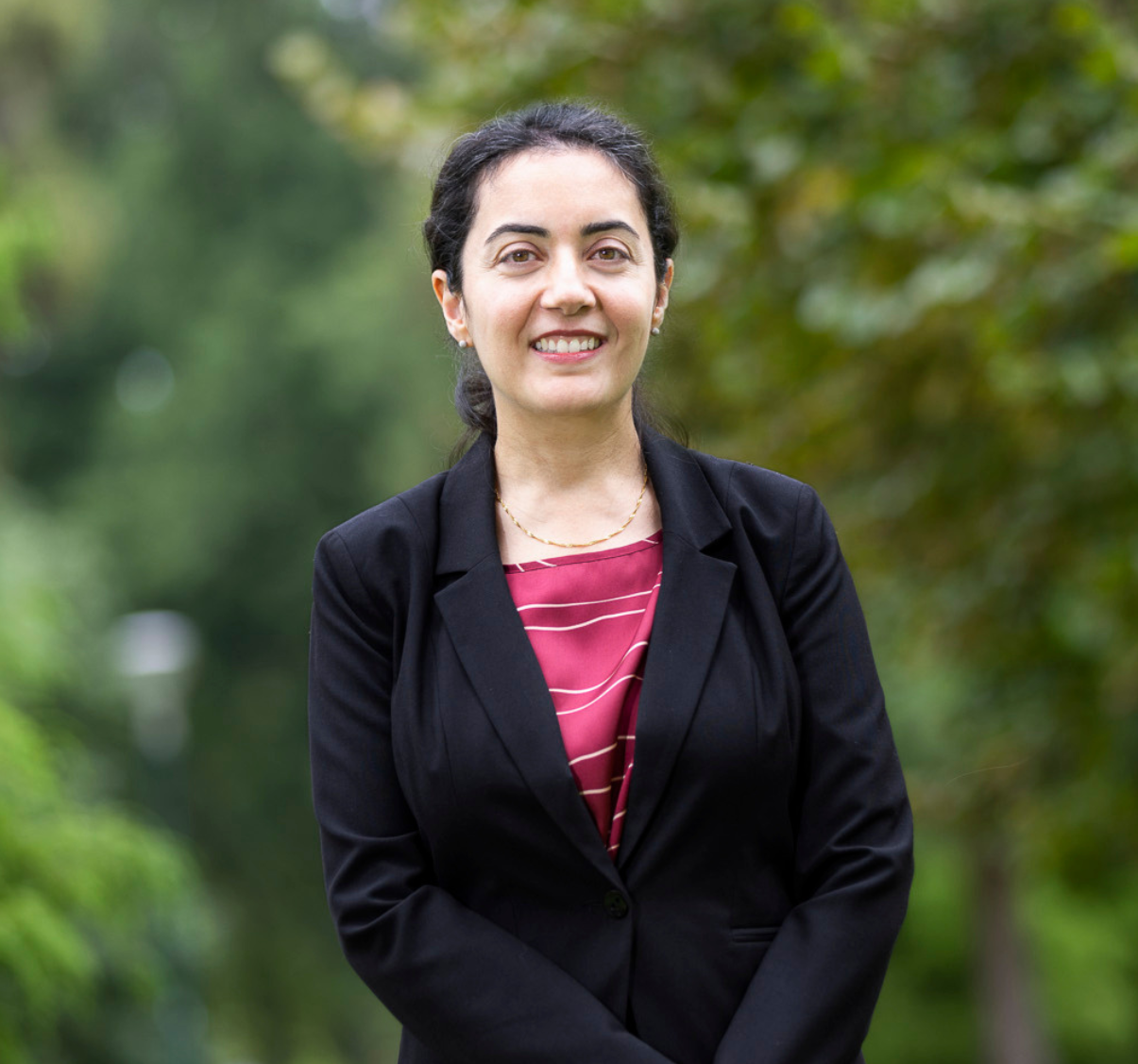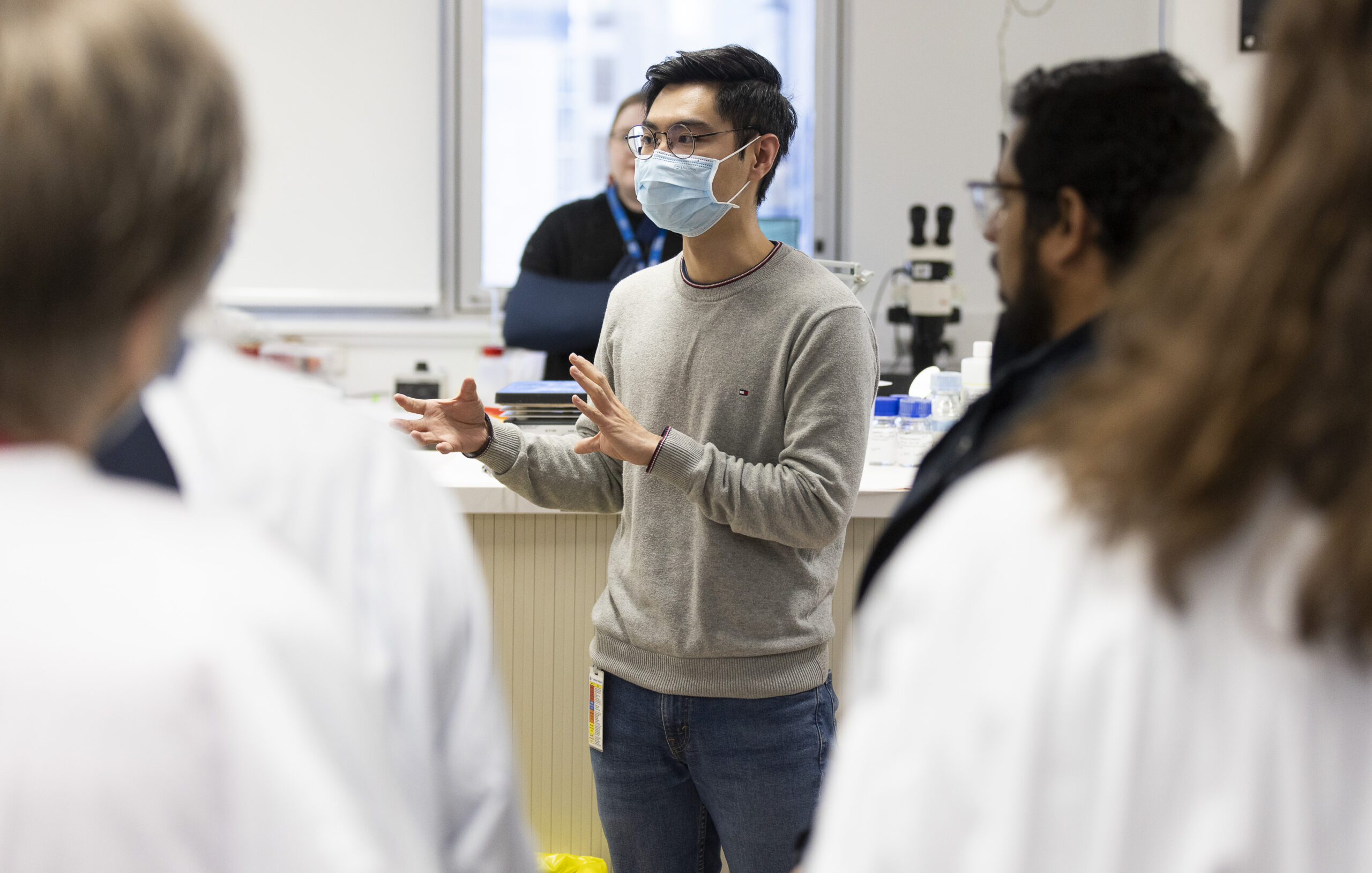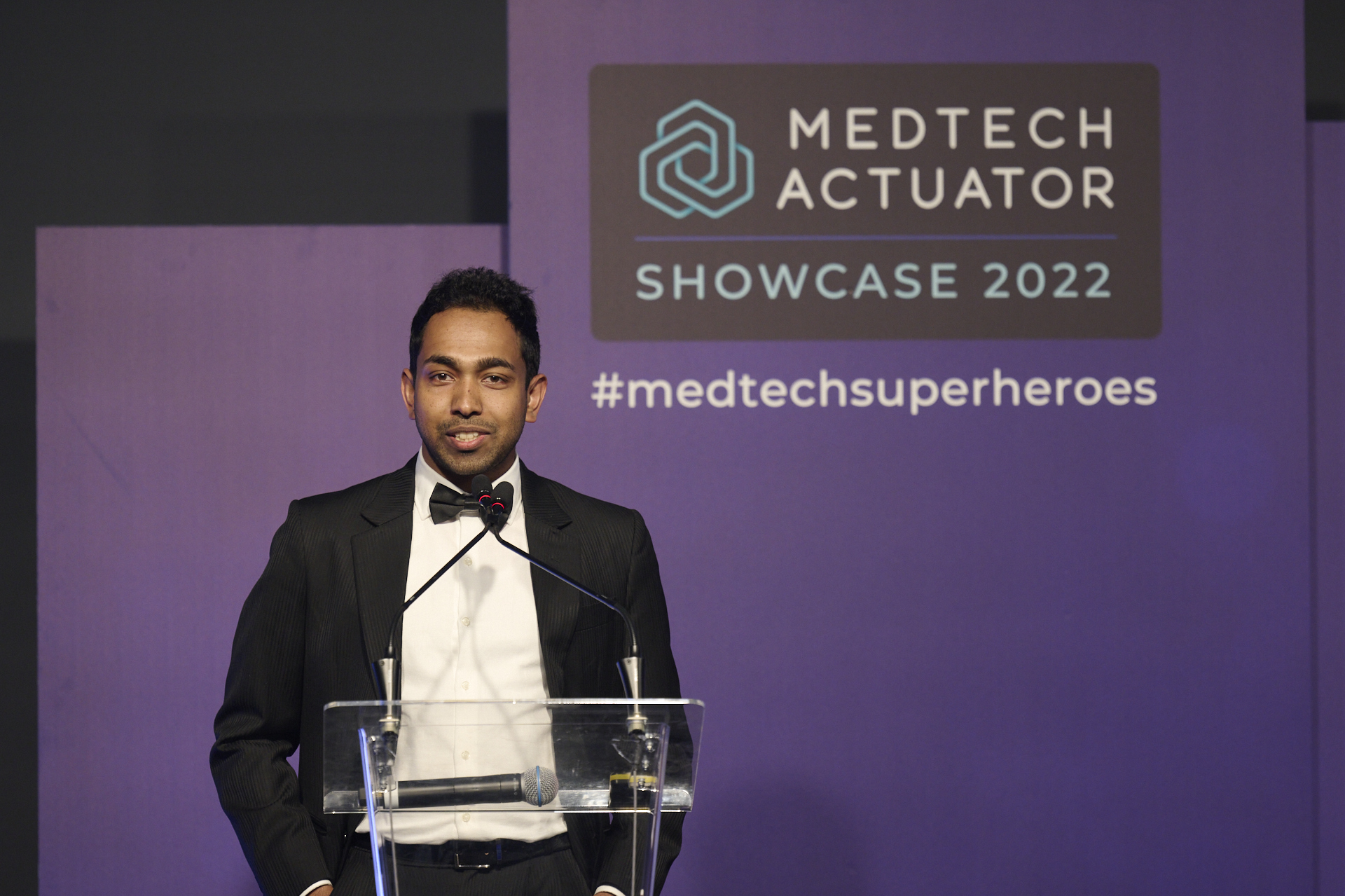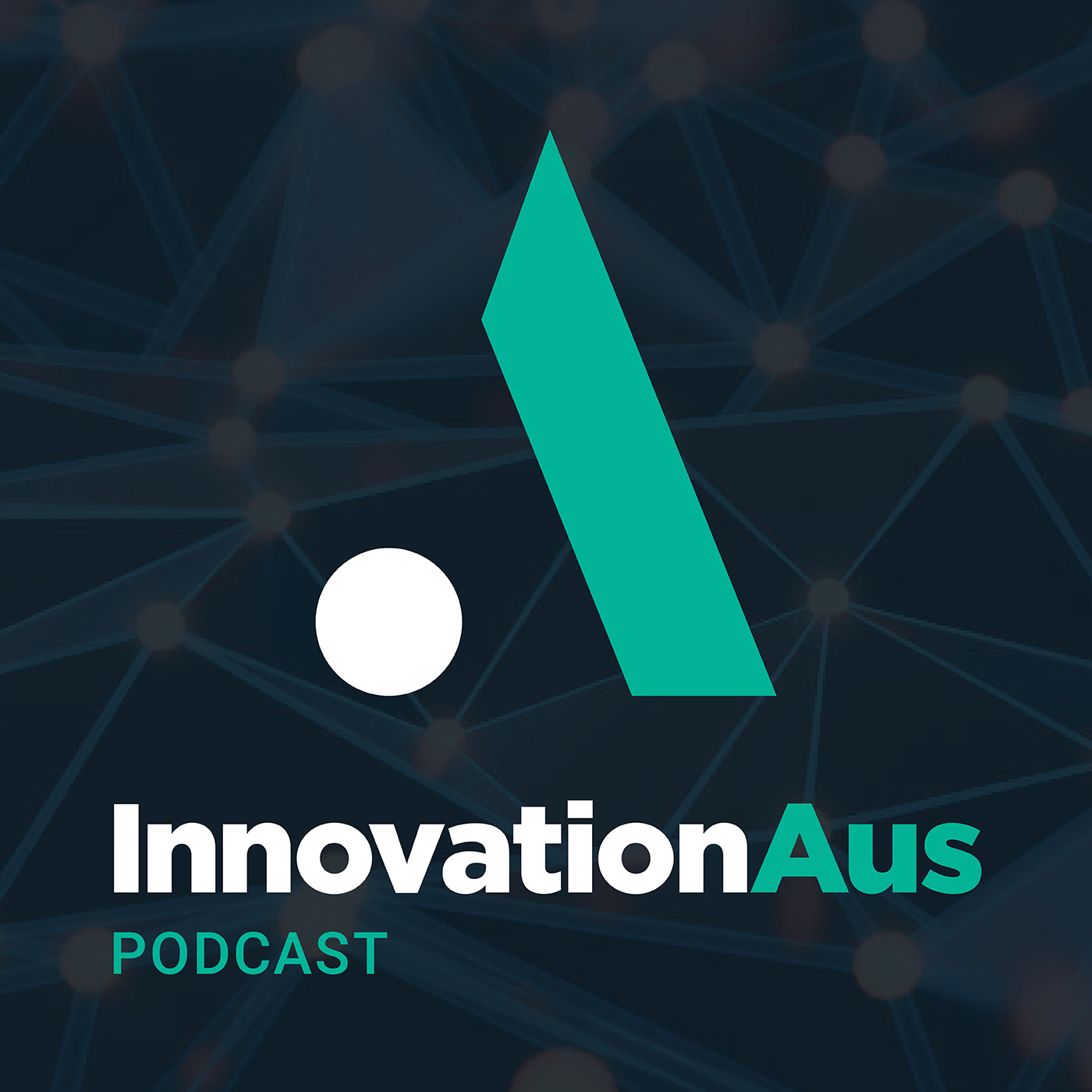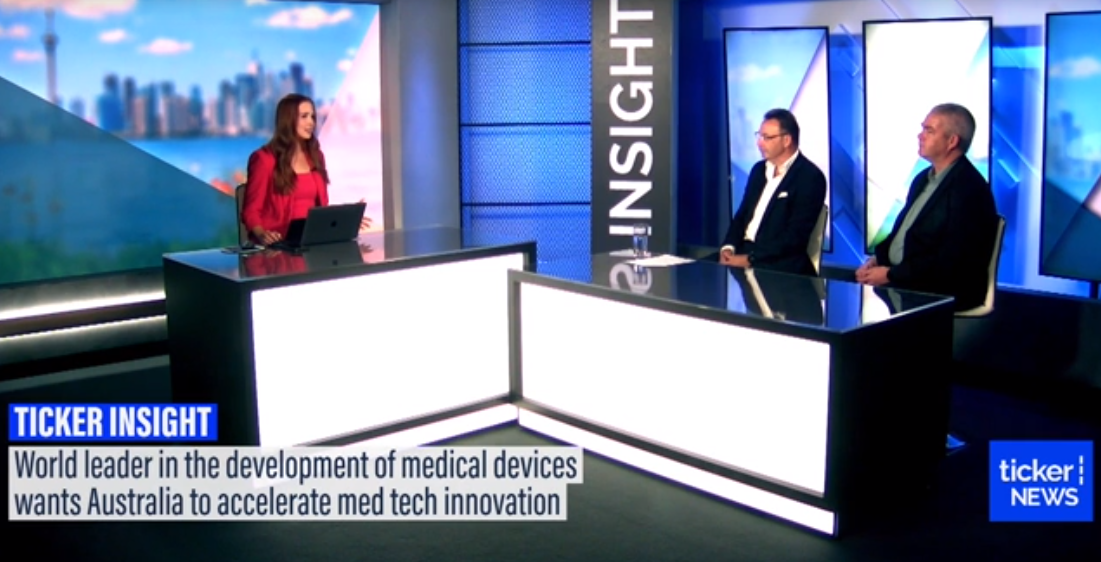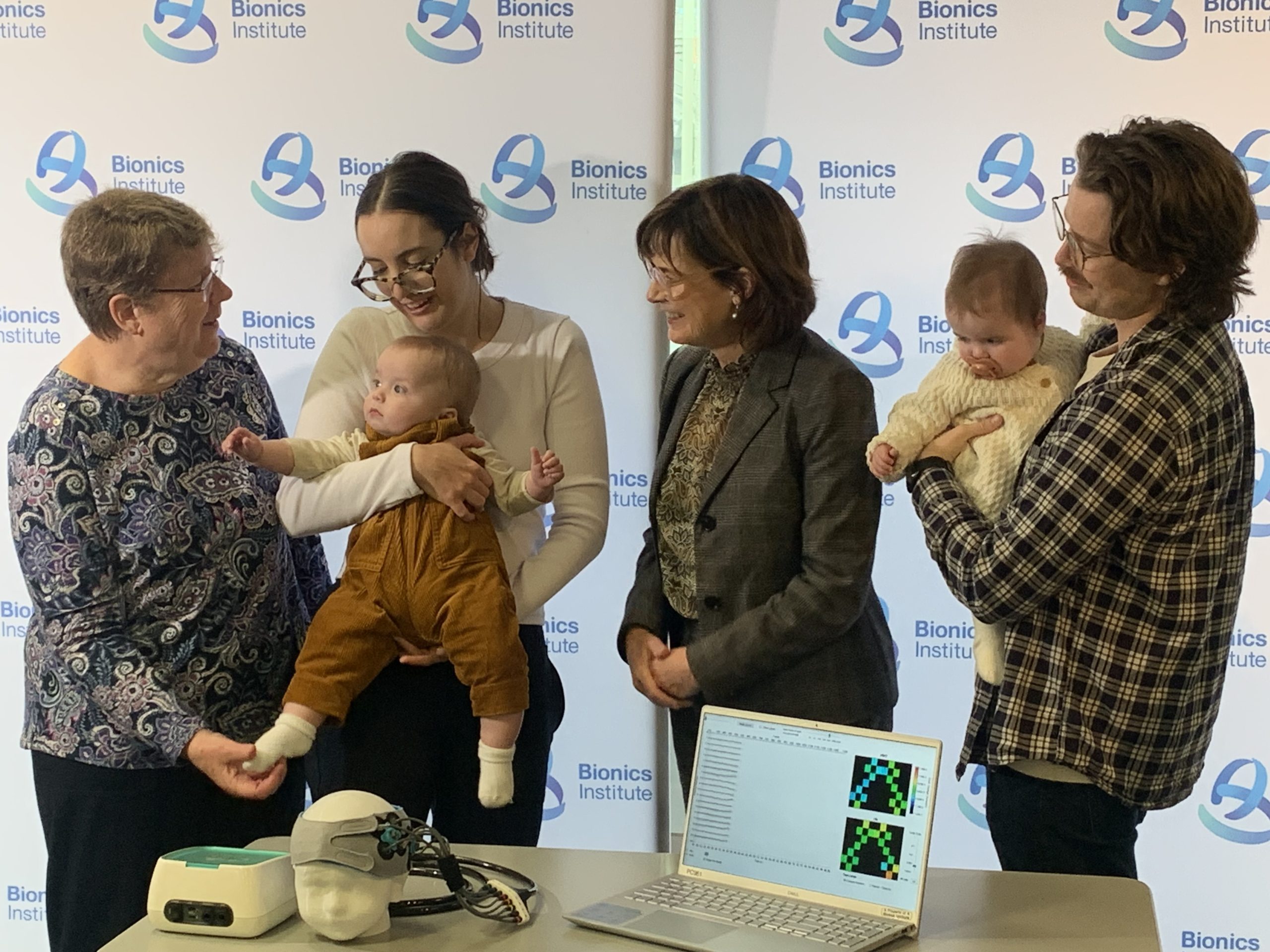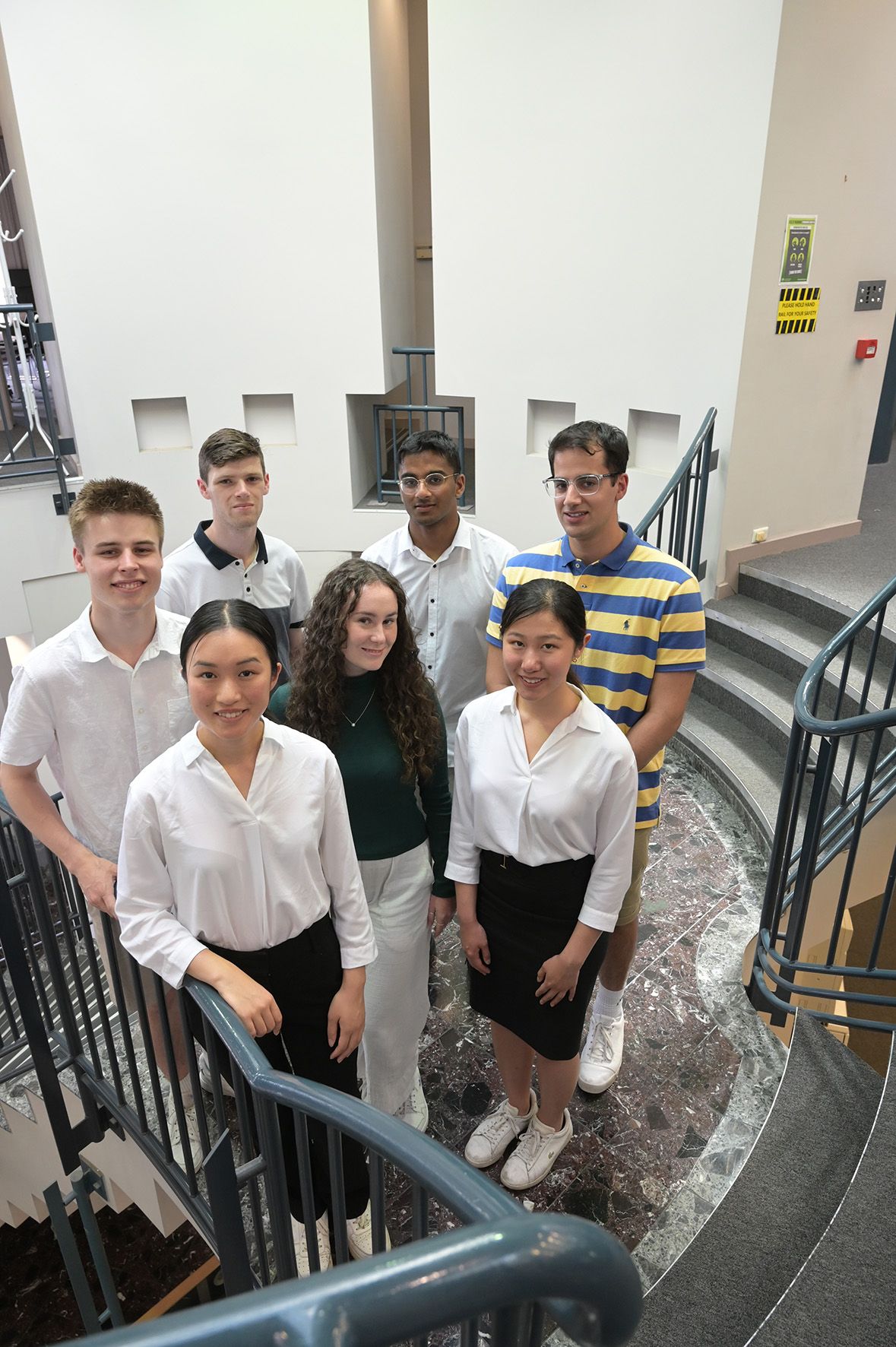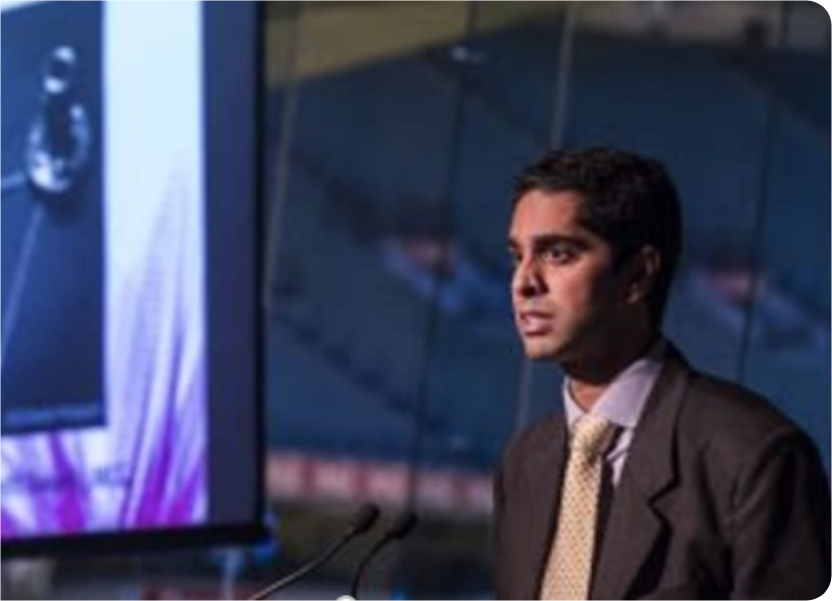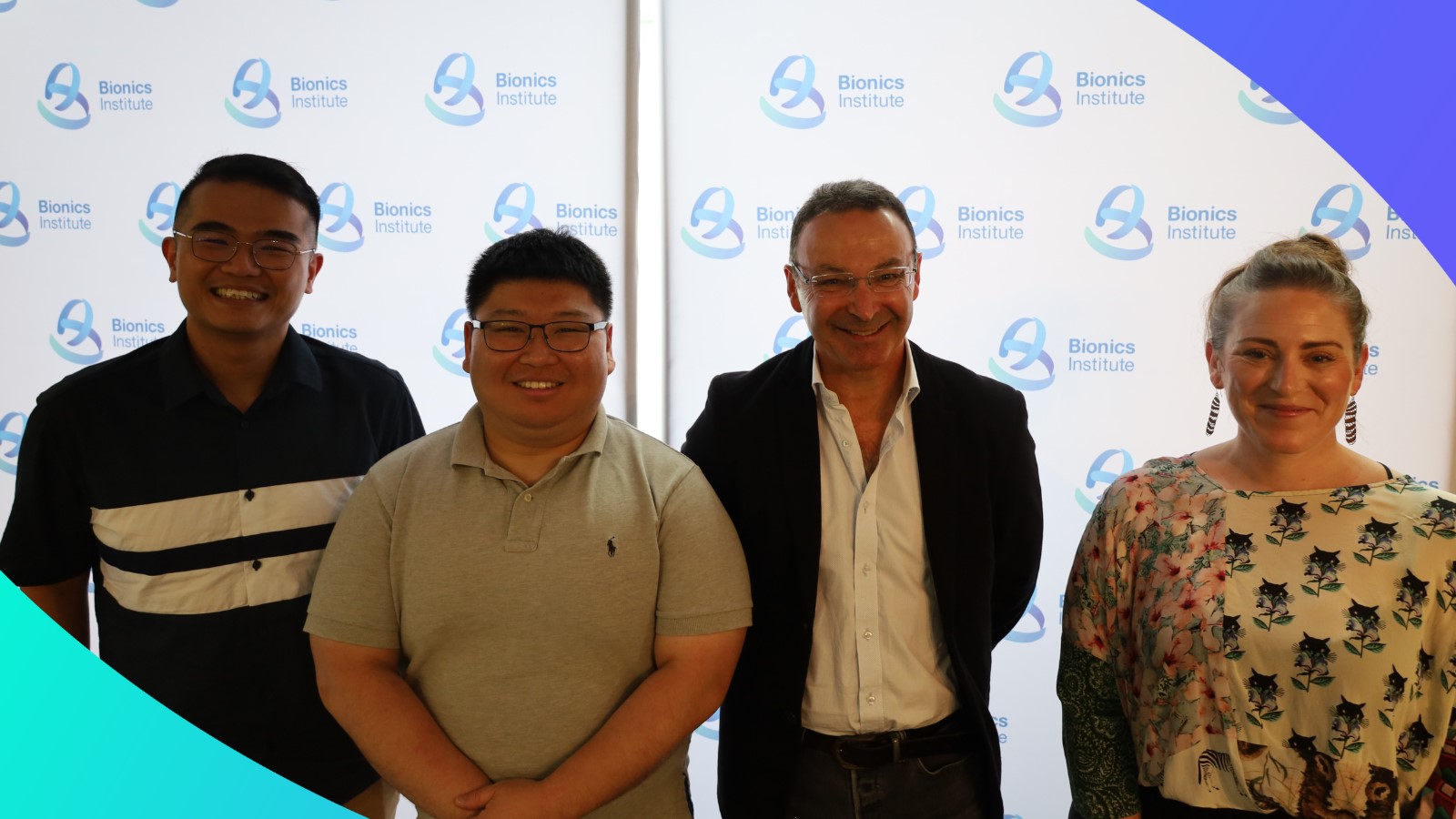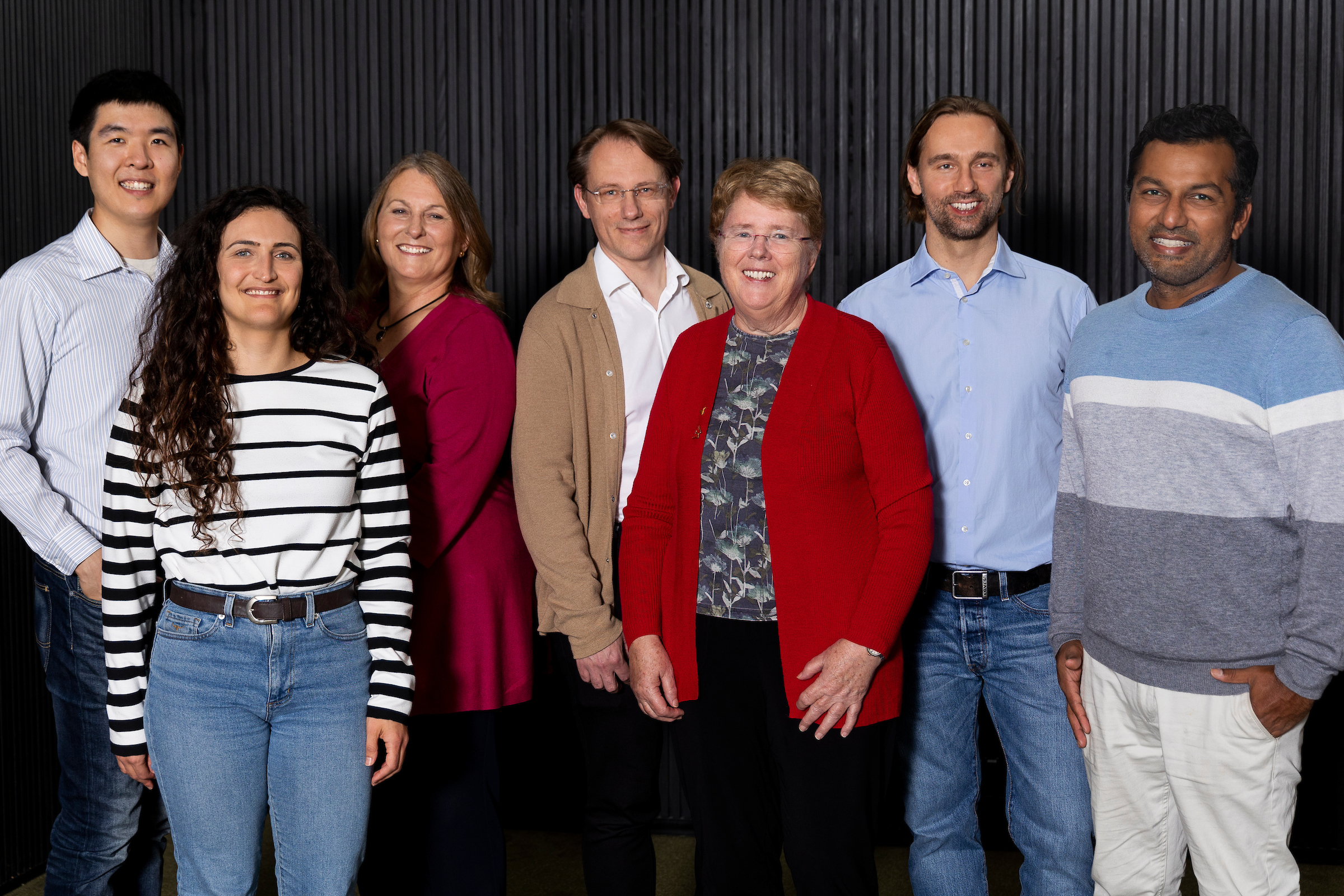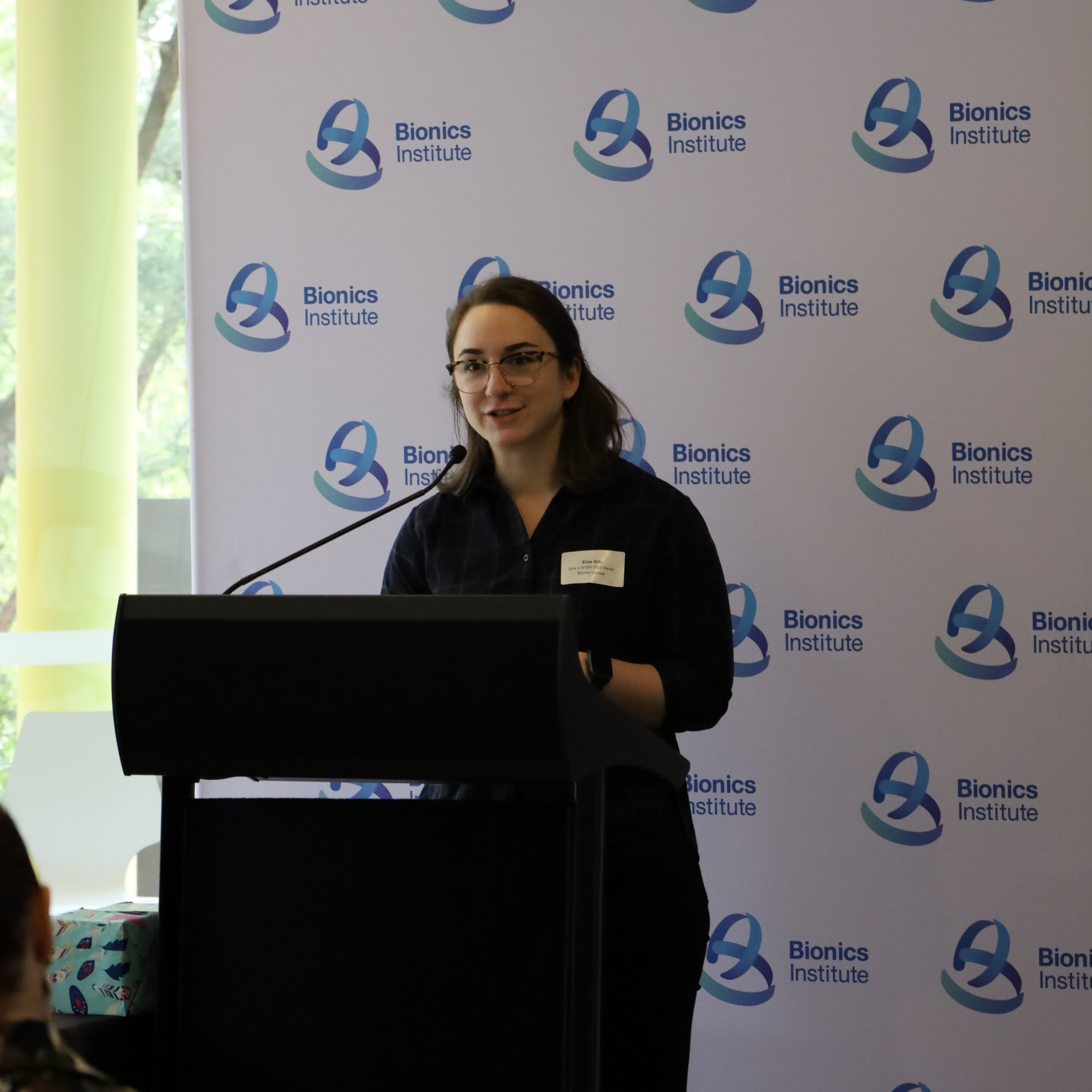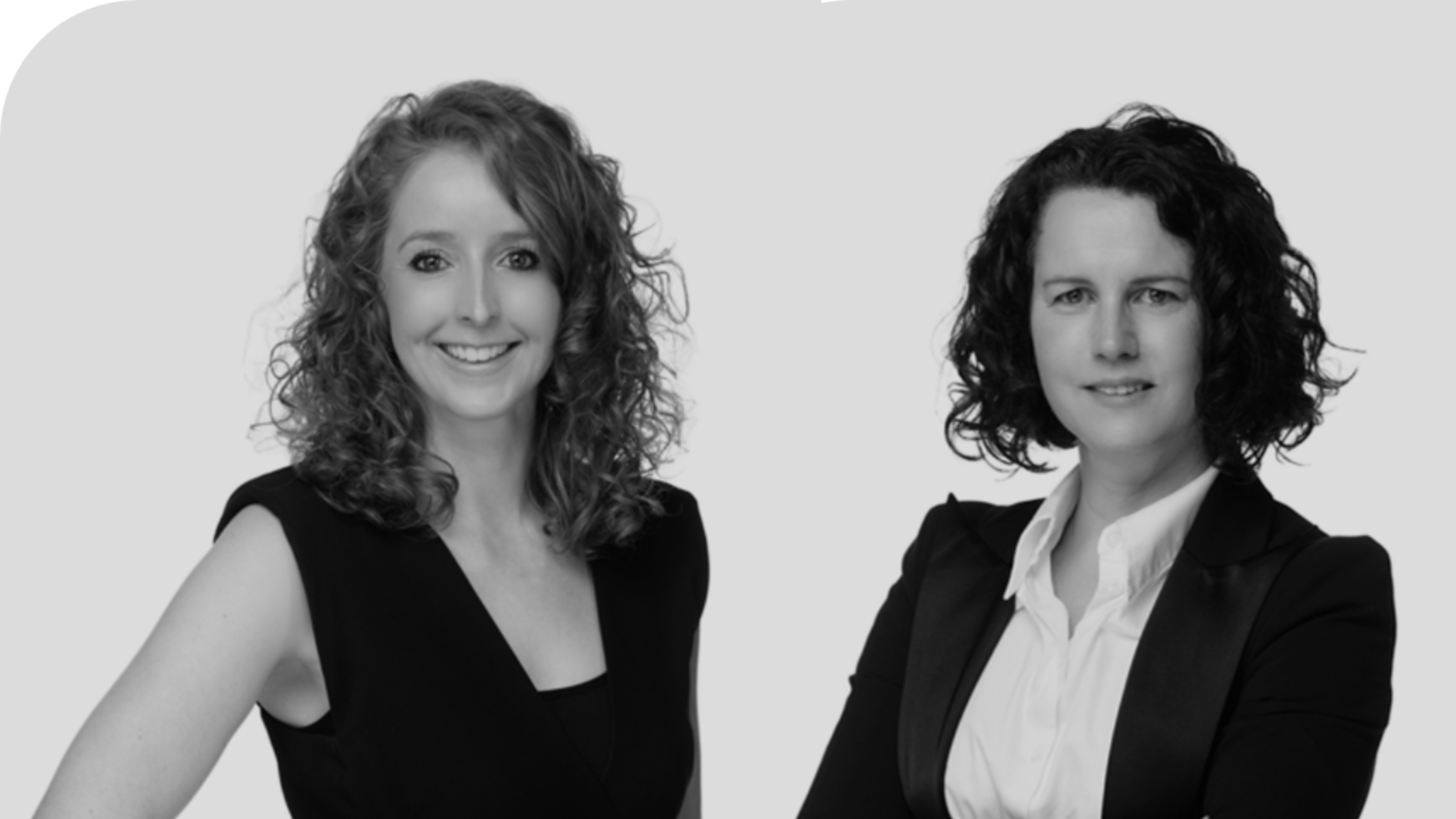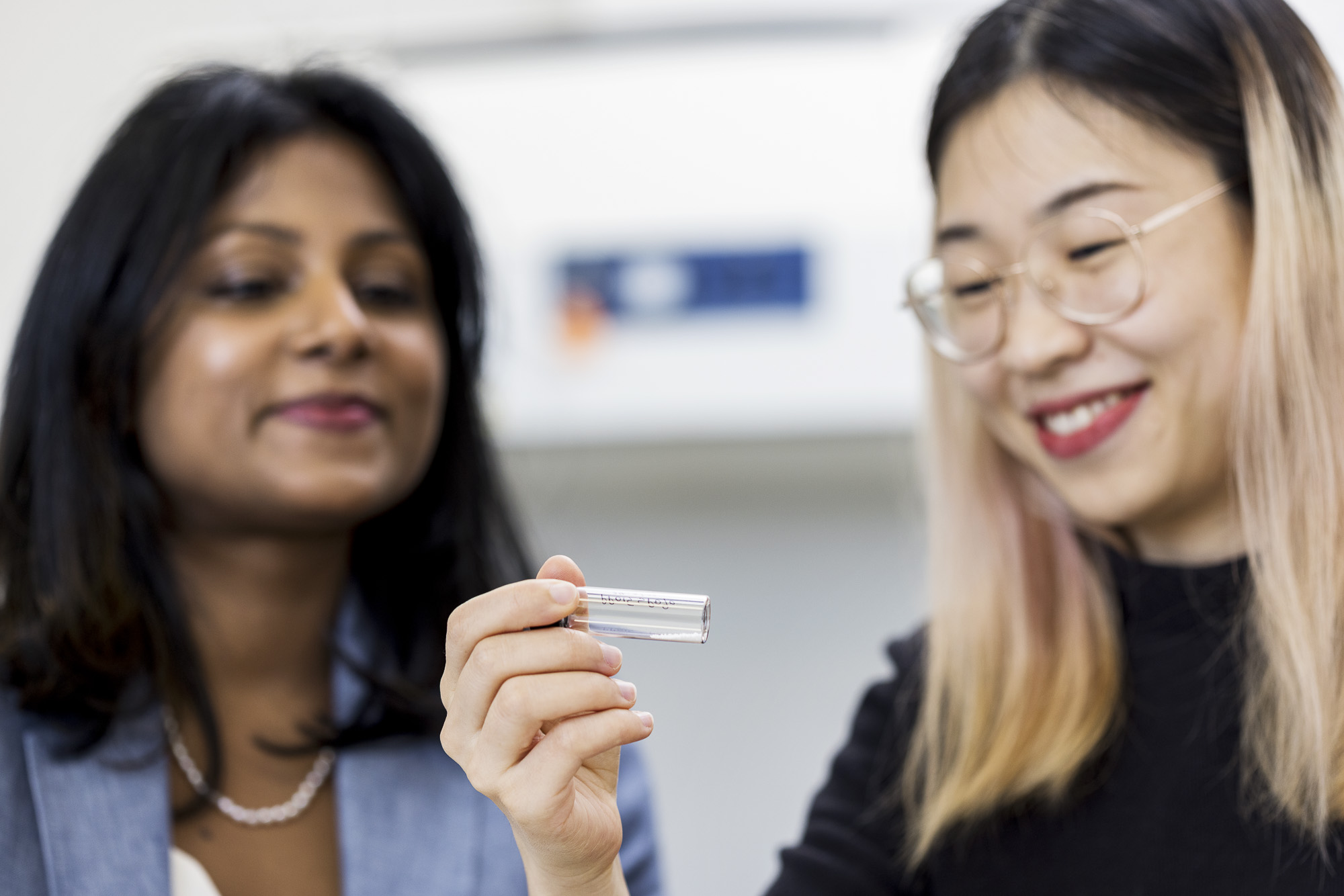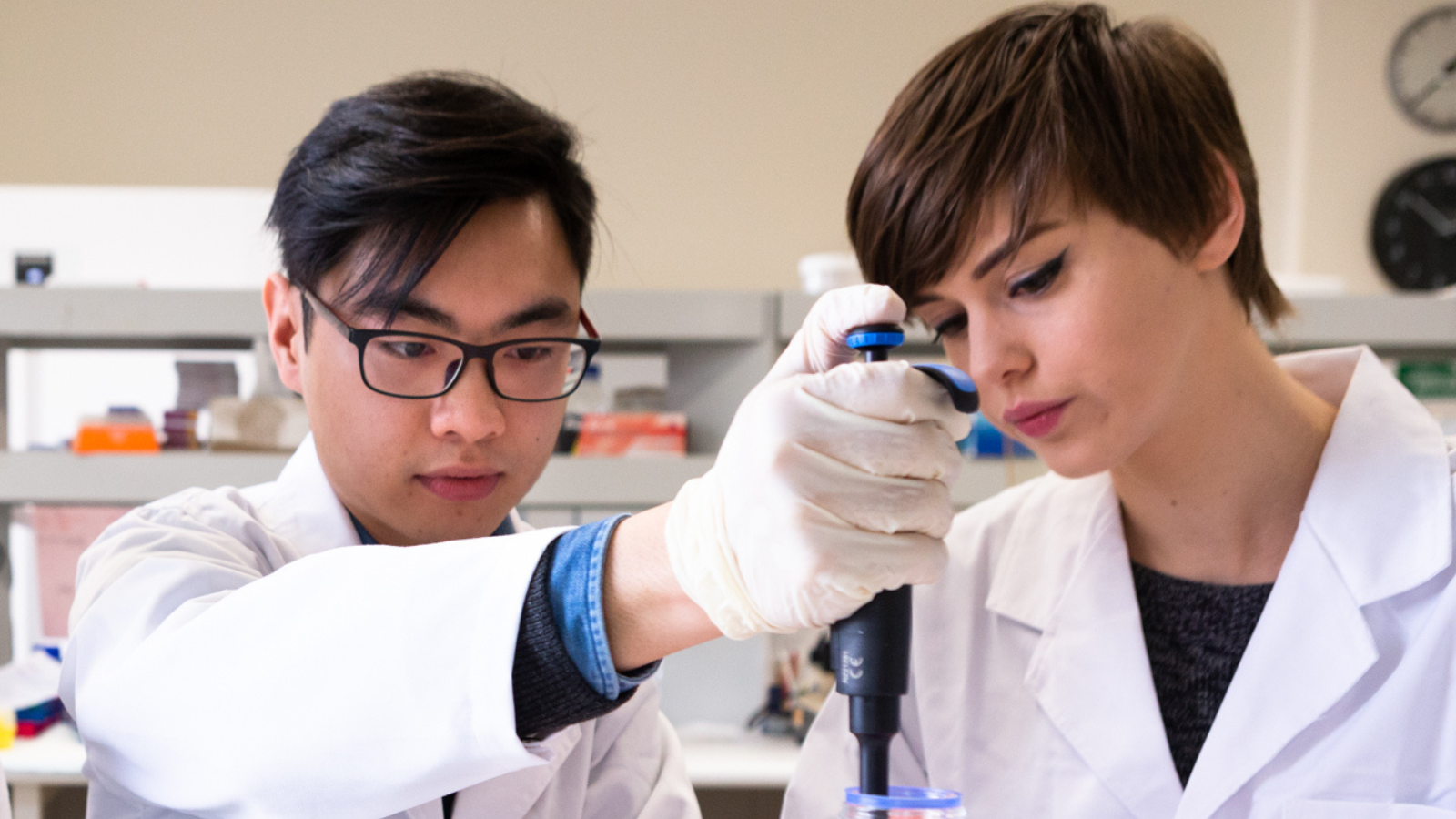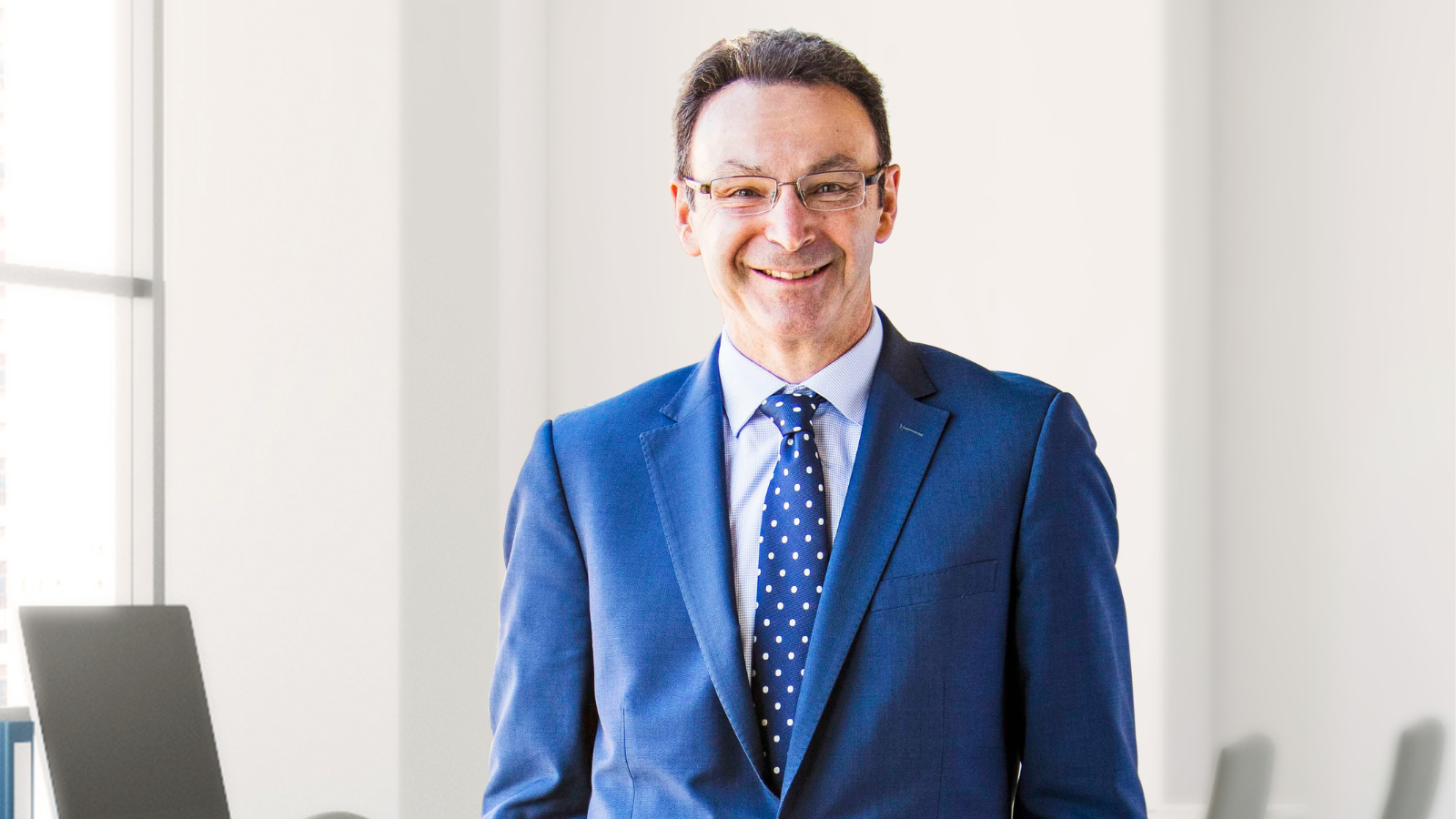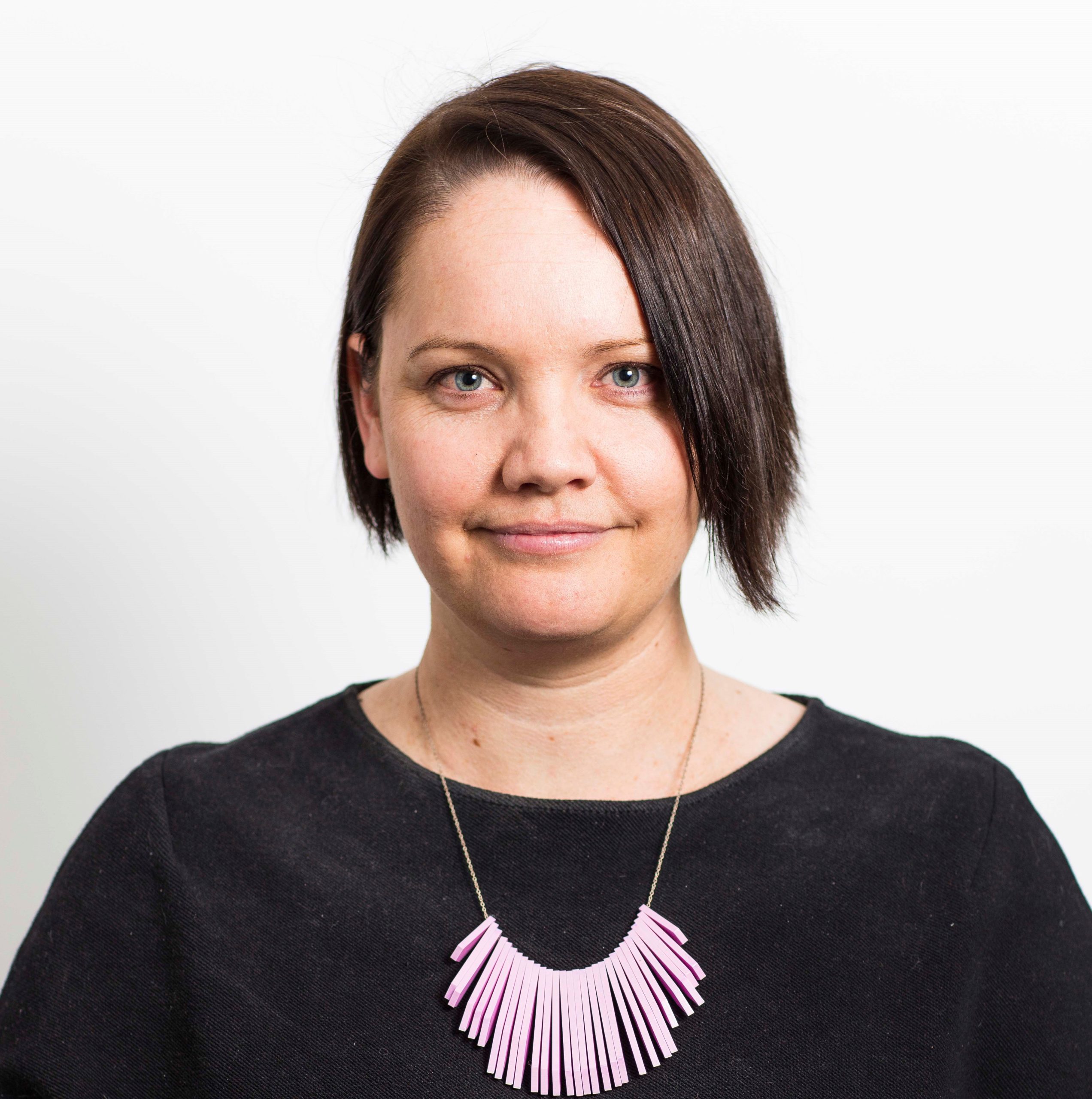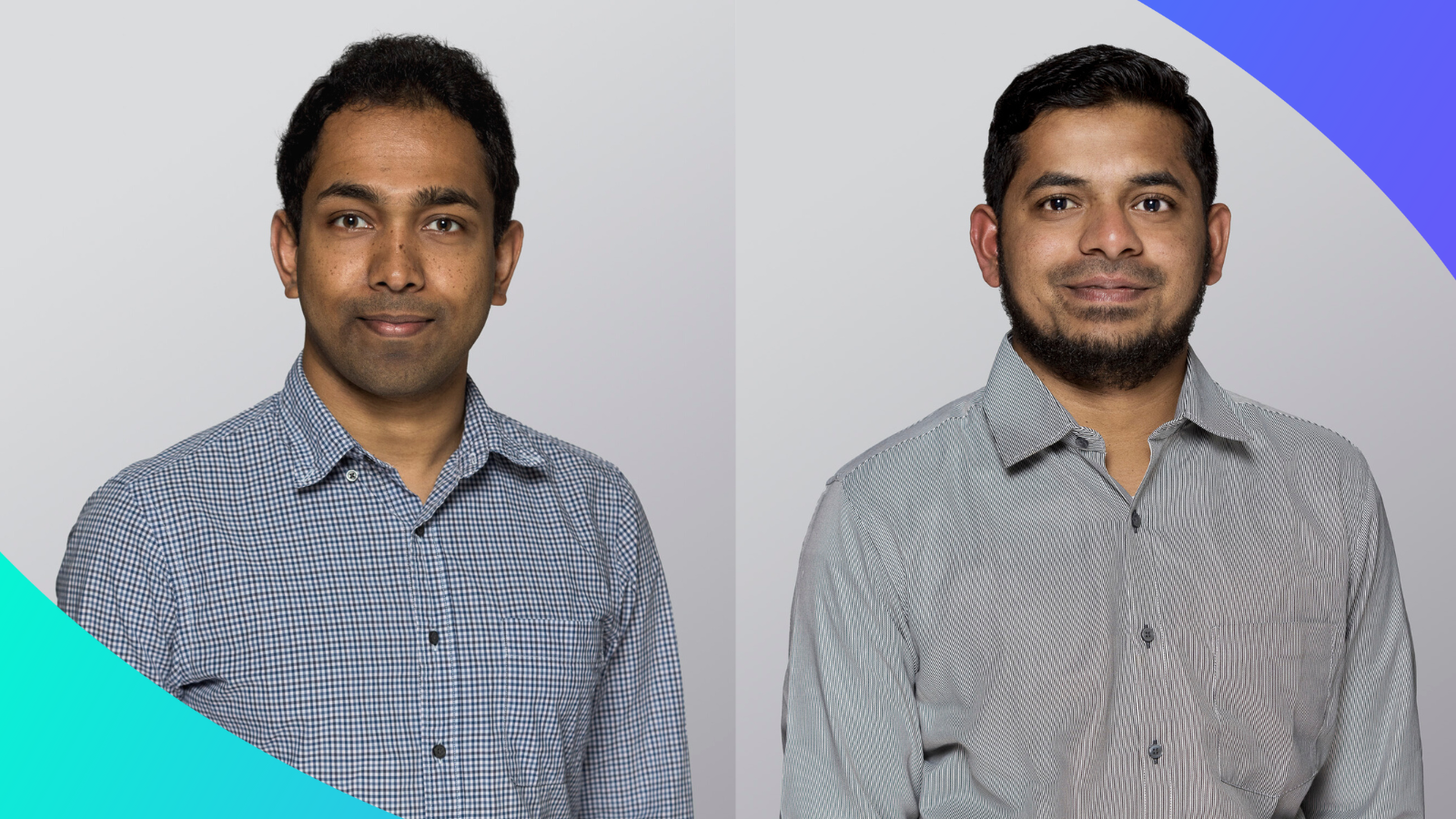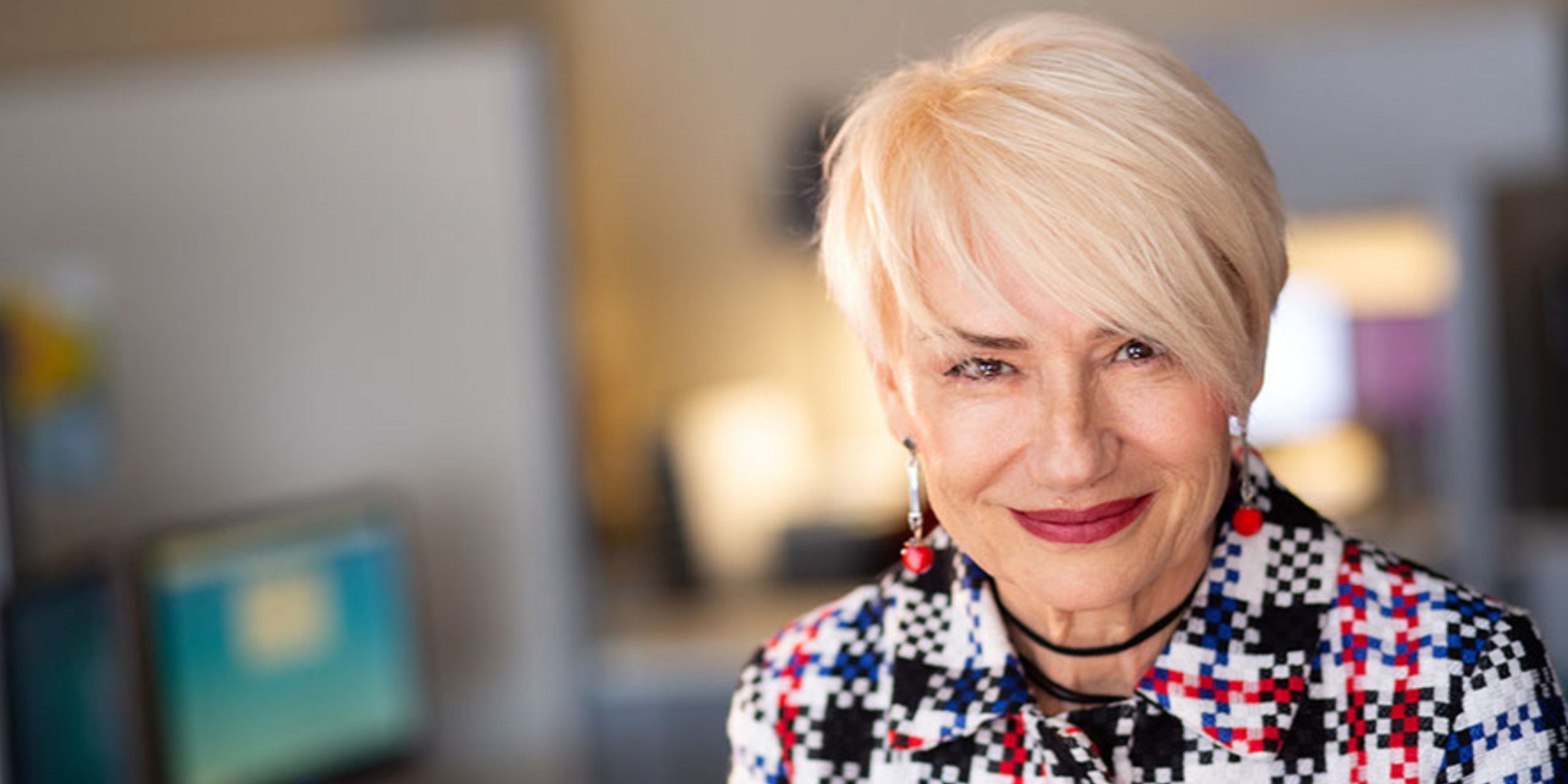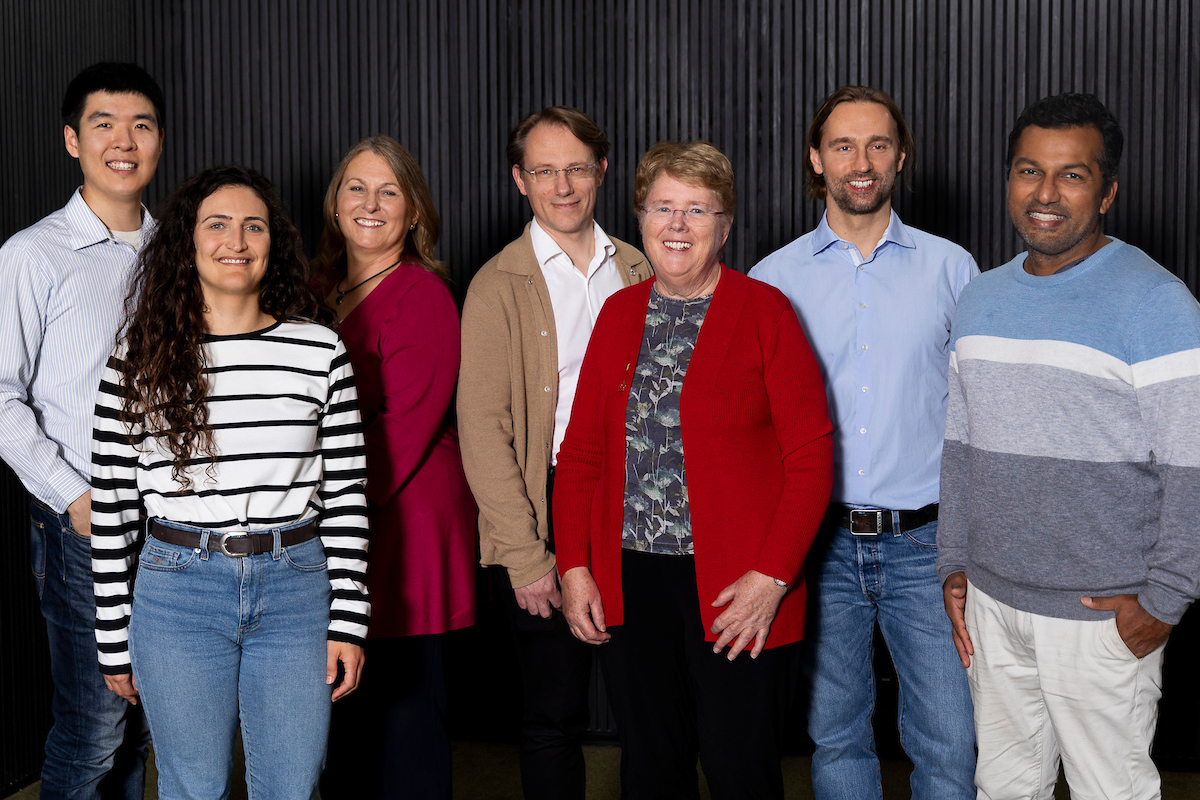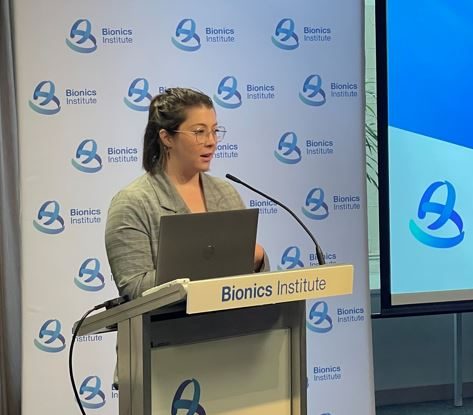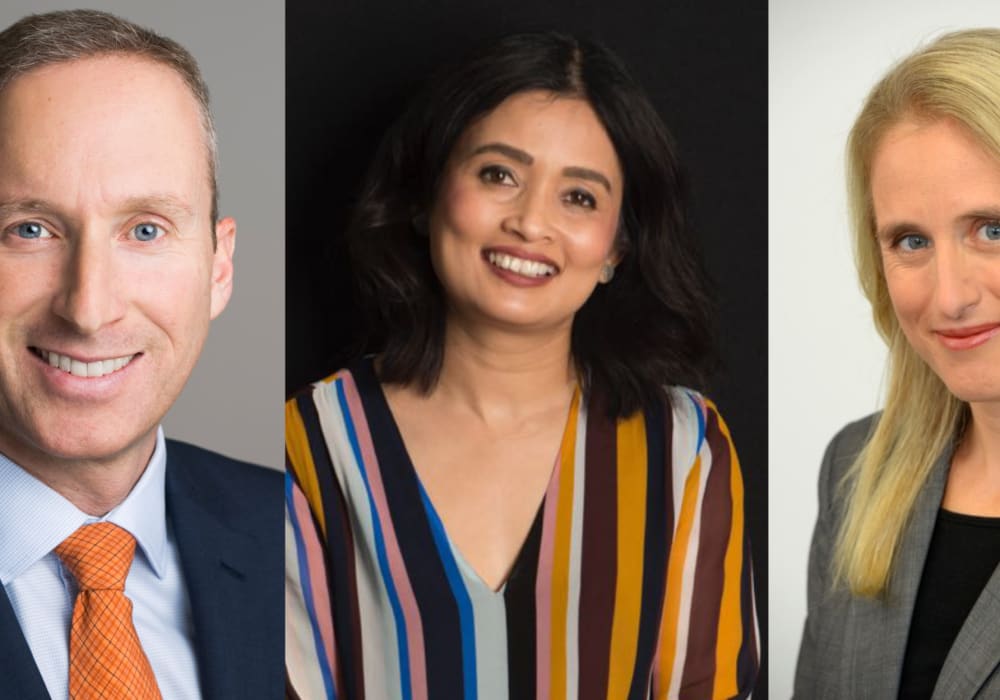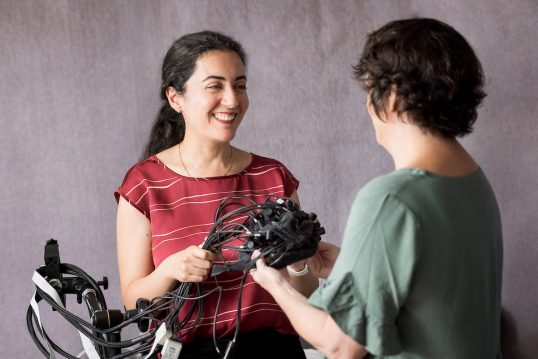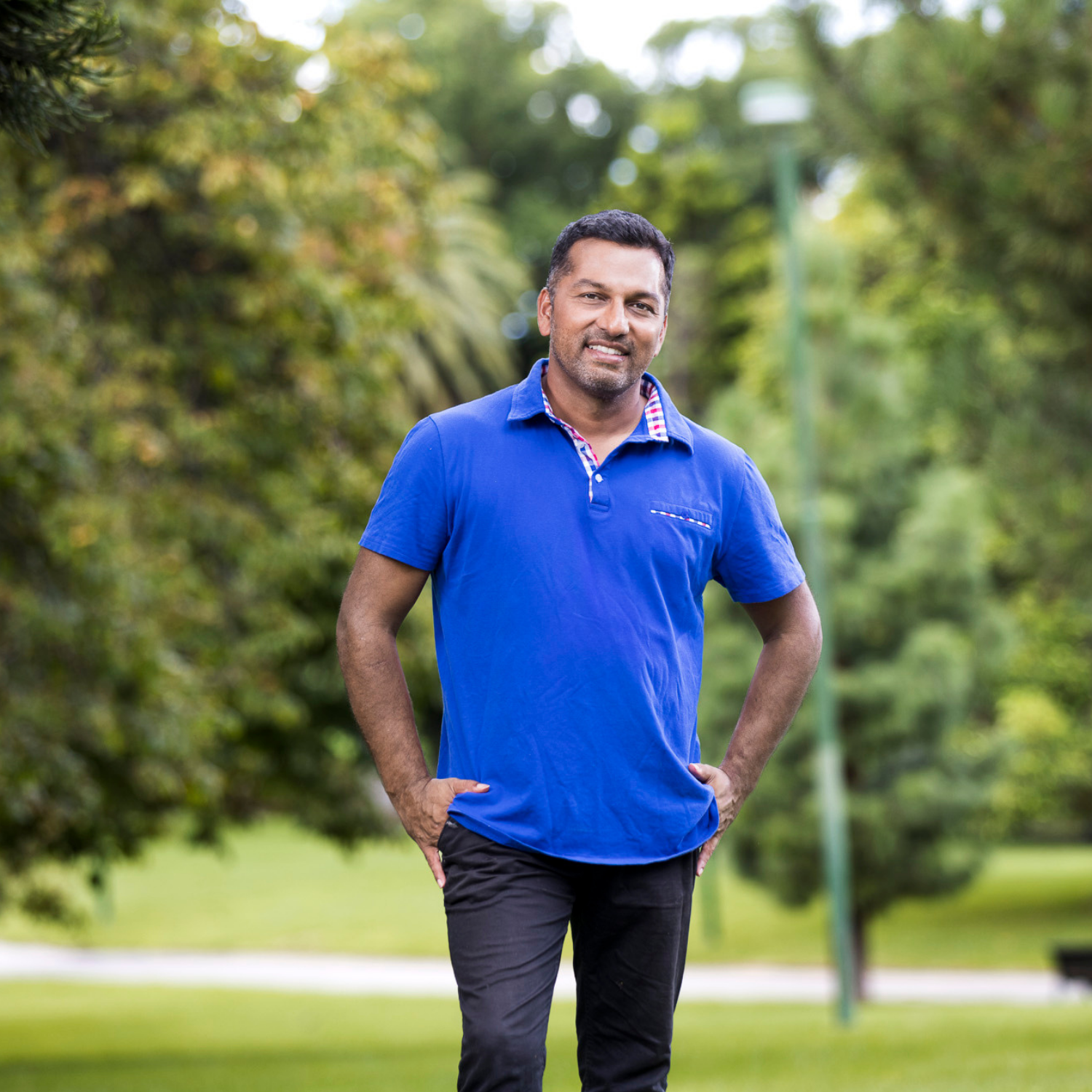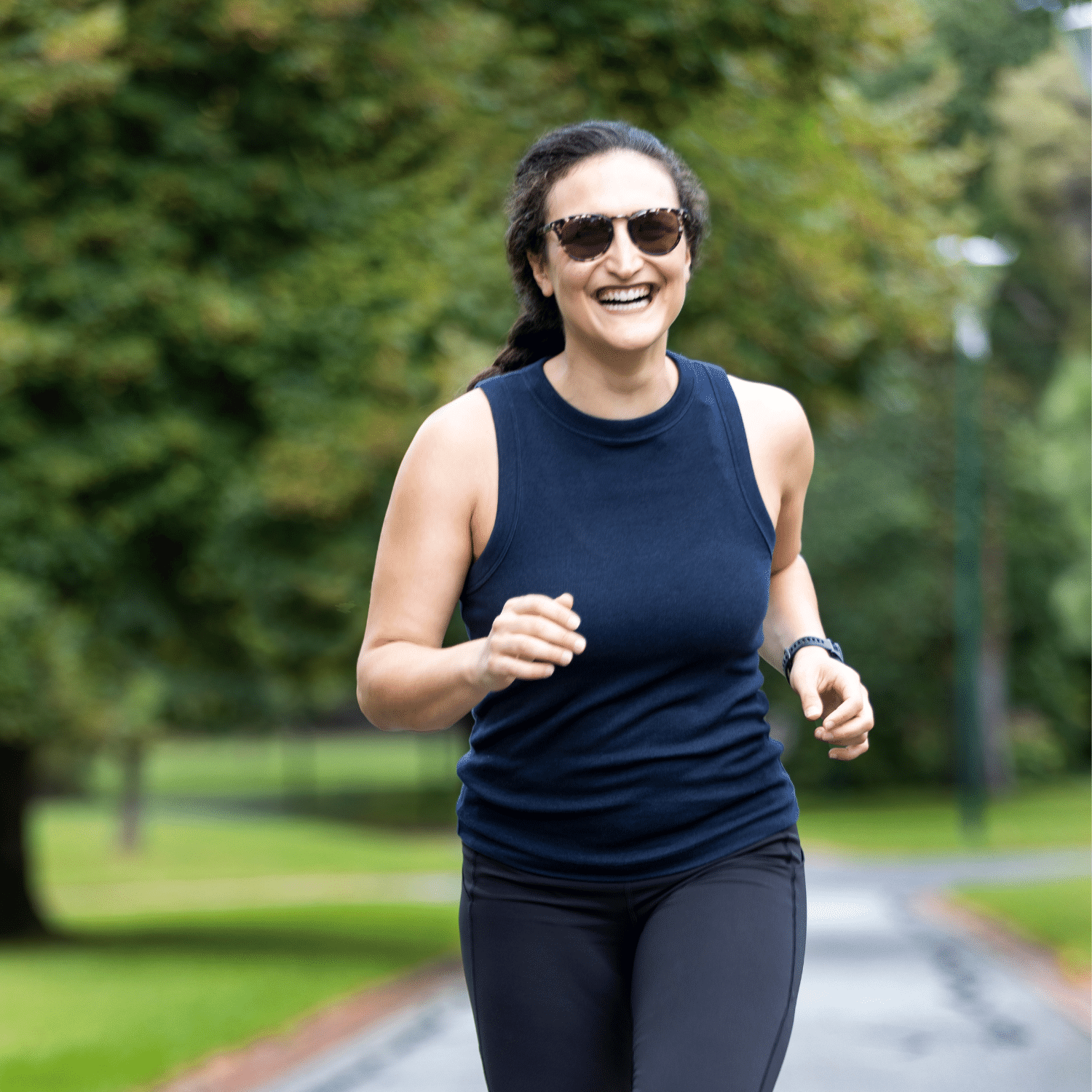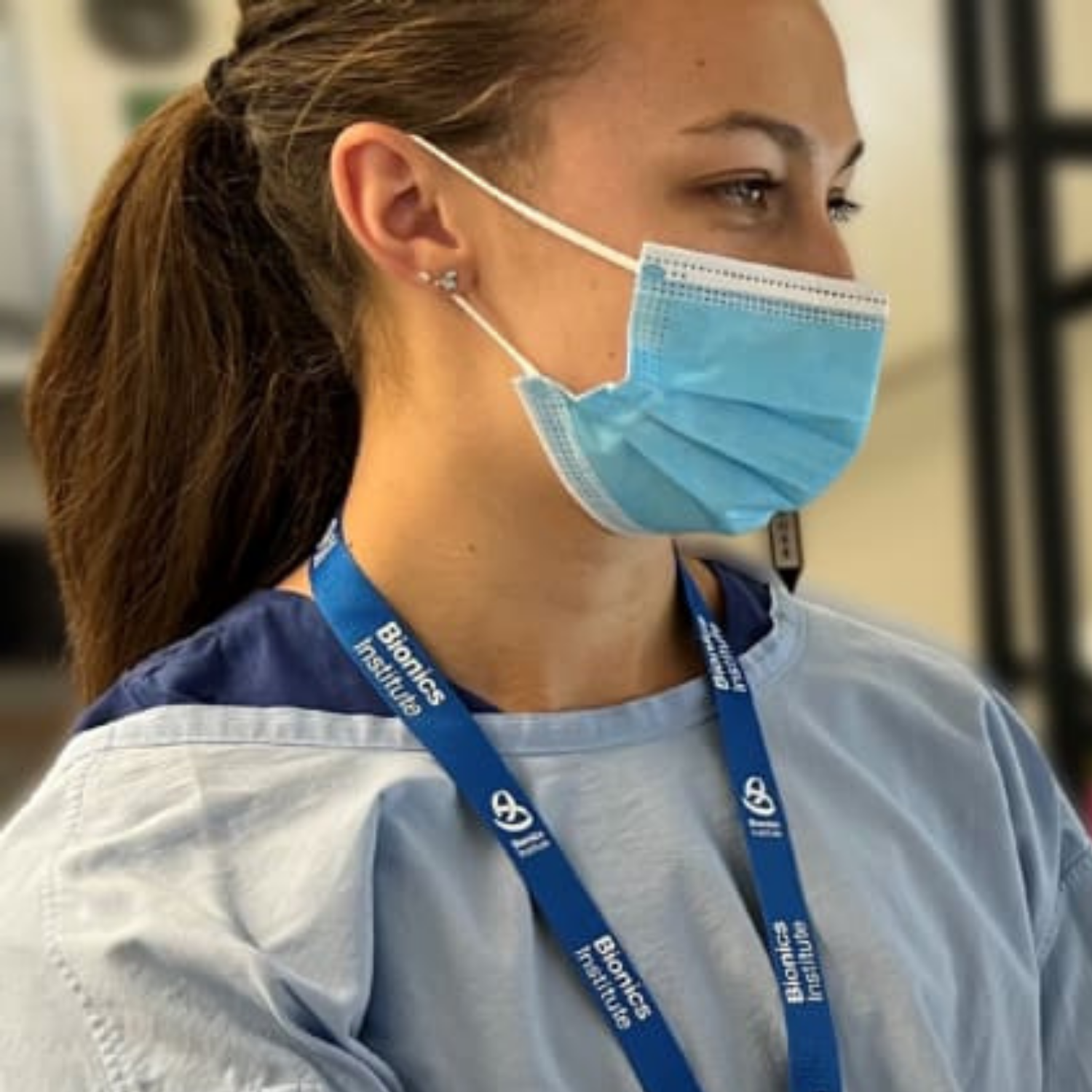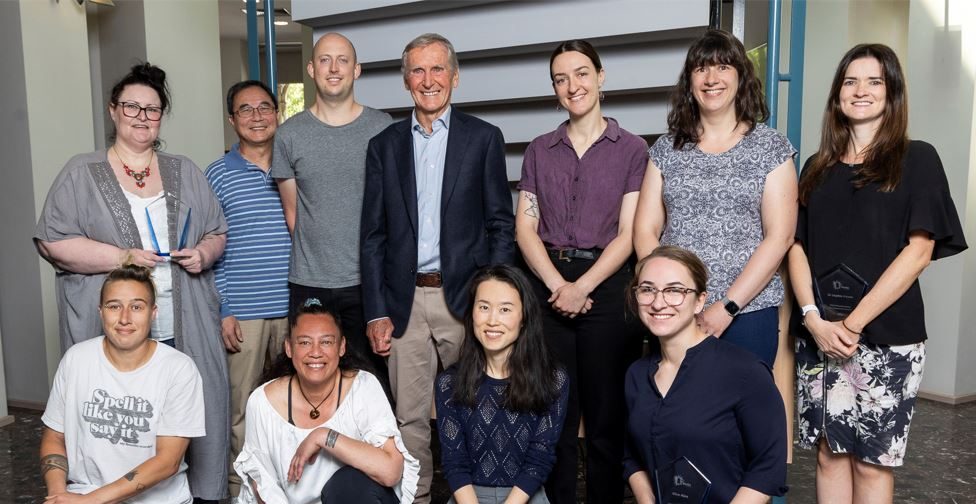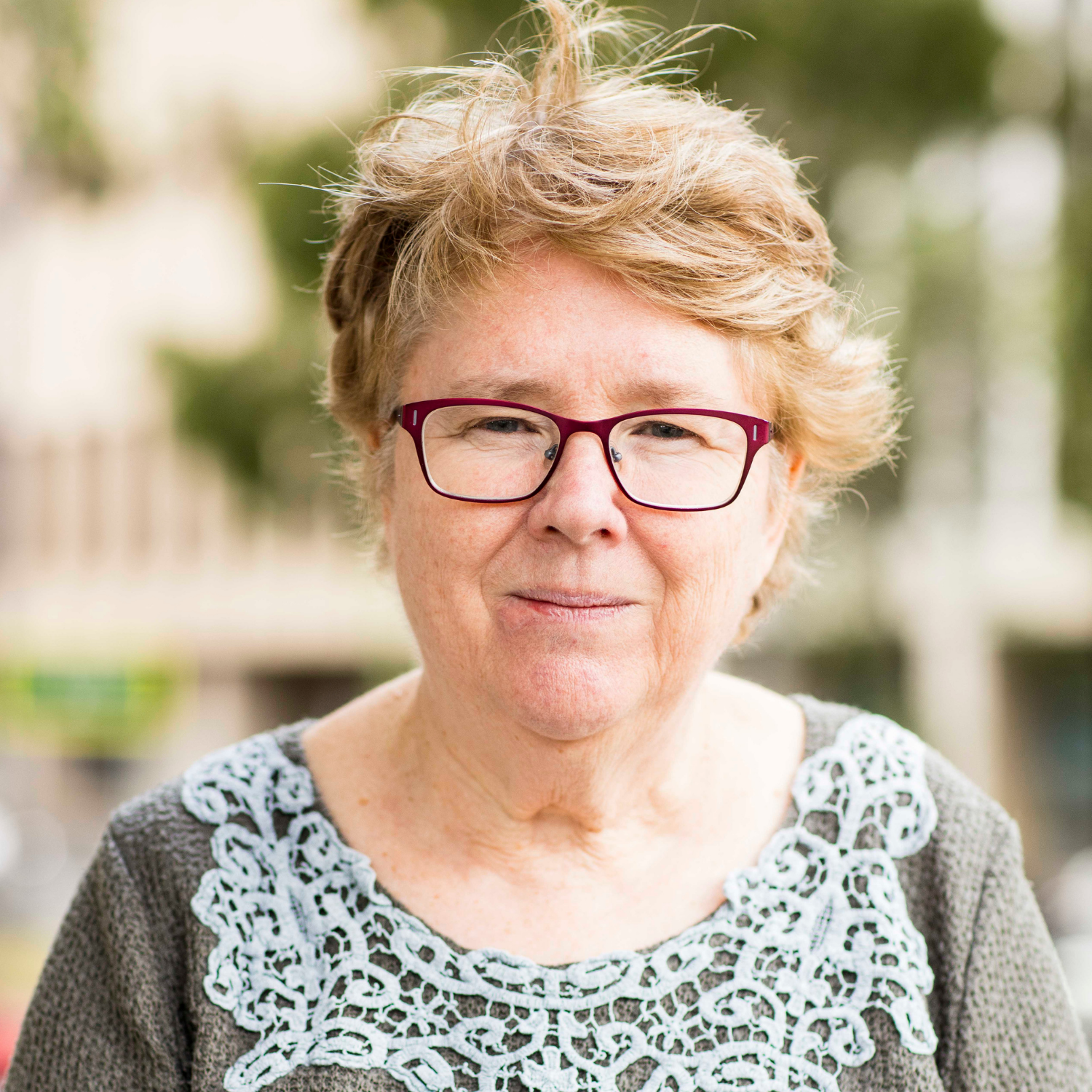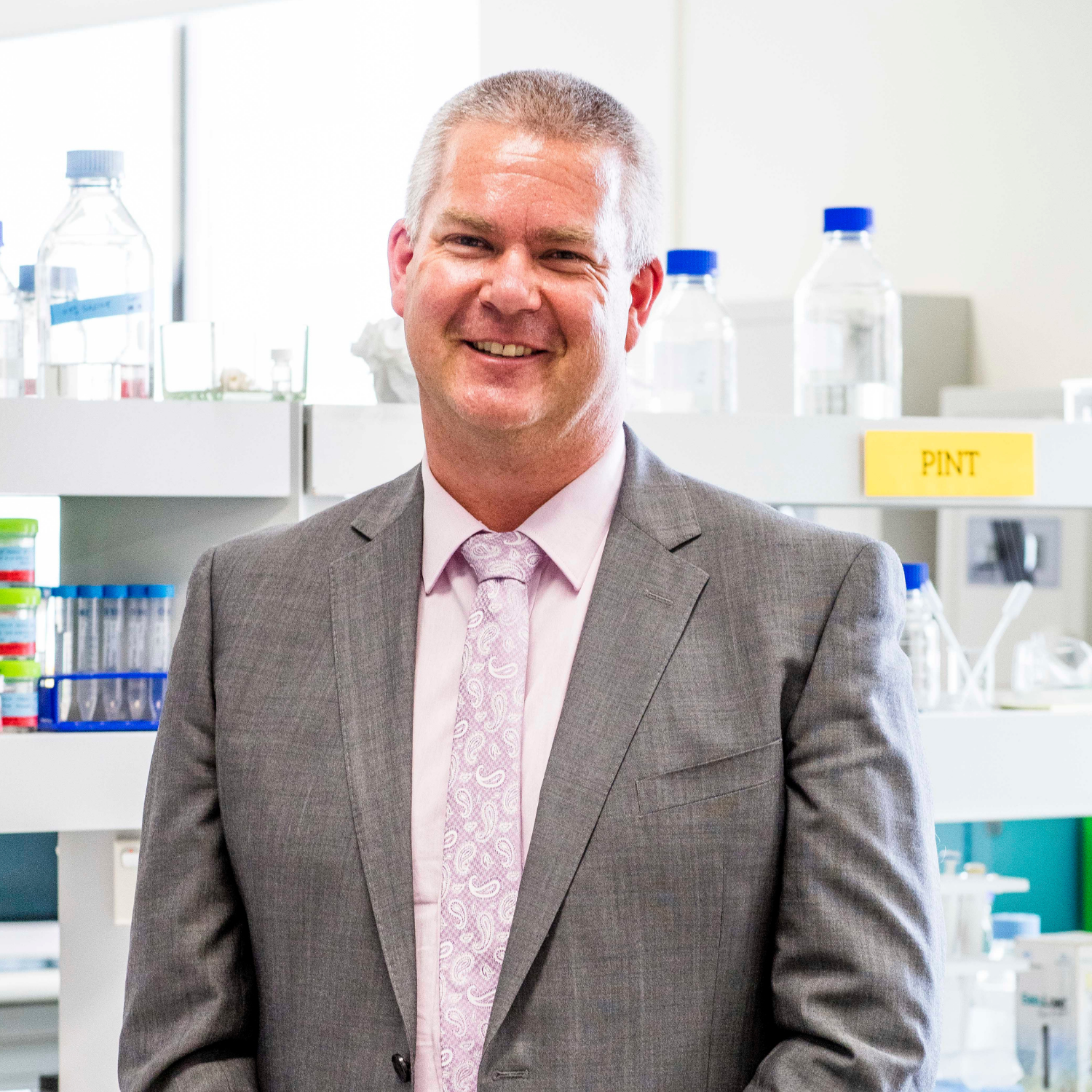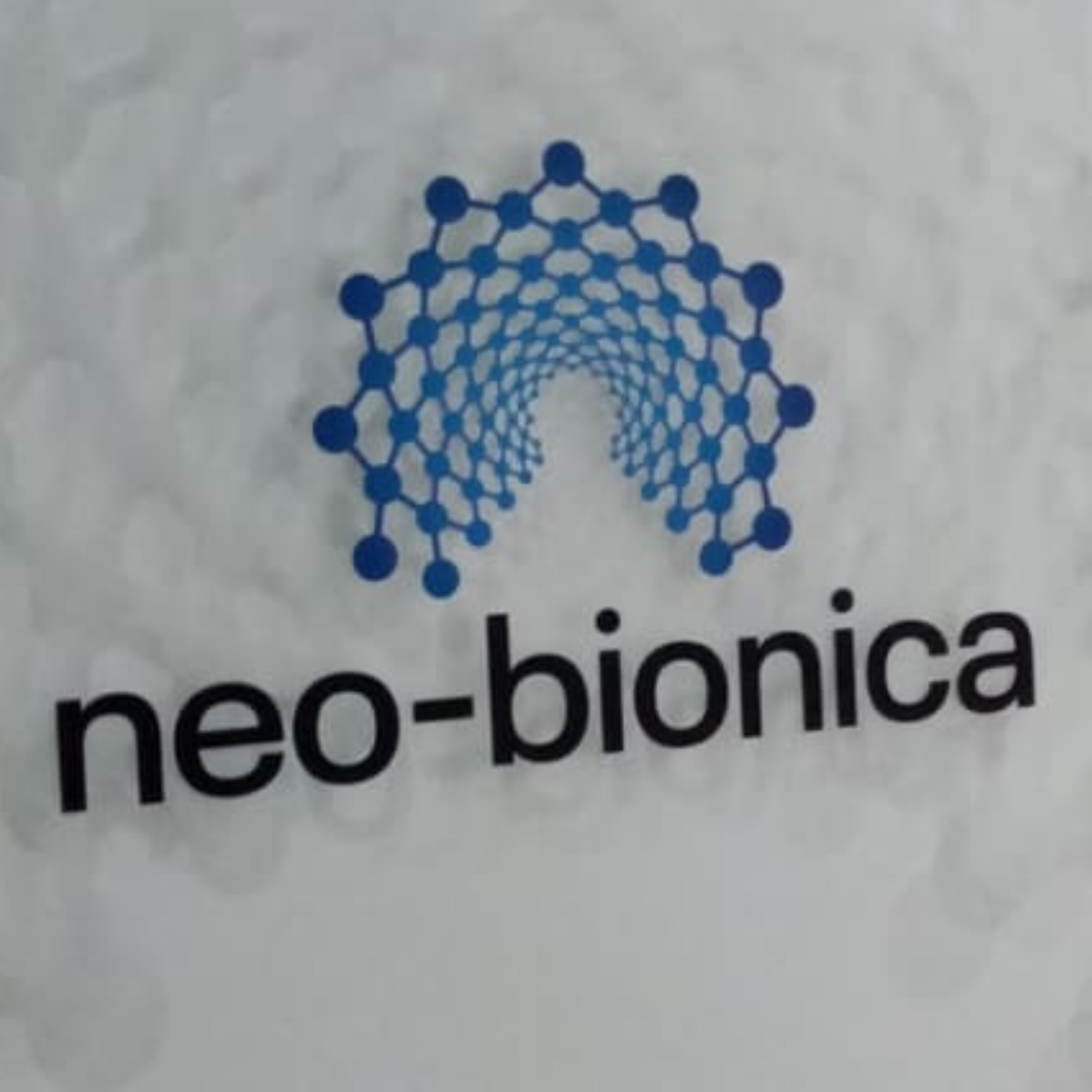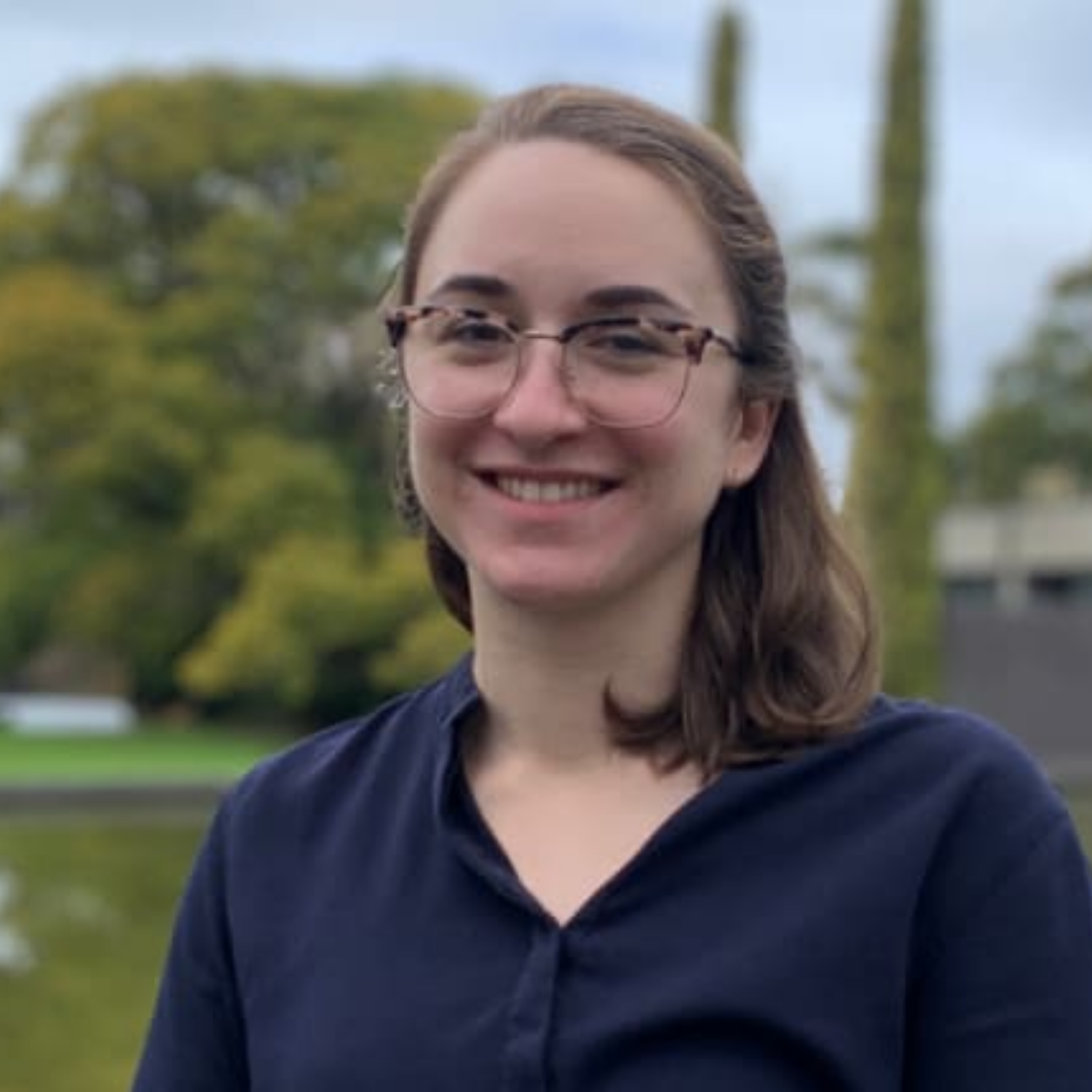A/Prof Richardson is a Senior Research Fellow, who started working at the Bionics Institute in 2001 when it was called the Bionic Ear Institute.
Rachael reflects that it has changed a lot since then, with the Bionics Institute now researching diverse areas such as deep brain stimulation for Parkinson’s disease and vagal nerve stimulation for inflammatory bowel disease.
Before joining the Bionics Institute, Rachael completed her PhD at the Walter and Eliza Hall Institute where she had the privilege of working in the Cancer and Haematology division under the guidance of Prof Doug Hilton. Rachael studied intracellular cytokine signalling pathways in blood cells.
When Rachael finished her PhD, Prof Graeme Clark was advertising for post-doctoral researchers to study the role of neurotrophins in the cochlea for the protection and regeneration of the auditory nerve. Neurotrophins can be considered a special type of cytokine for neurons, so she thought she could bring some expertise to the research project. Rachael was also interested in being involved in more translational research that the Bionics Institute specialises in.
Rachael enjoys the fact that the Bionics Institute is small enough that everyone has a key role in each research project, and yet large enough to be a world-leader in neural modulation for many clinical conditions. She likes the patient focus and hearing about the success stories.
Although Rachael has been working for the Bionics Institute for over 19 years, the work she does has changed and evolved so much that it remains interesting and is always challenging. This is what Rachael likes about working in science.
A lot of Rachael’s work revolves around therapies for hearing loss, with a particular focus on gene therapy. The field of gene therapy is moving at a rapid pace and the results being seen in the lab are highly encouraging. Rachael finds it exciting to be working in the field of hearing research at a time when a biological therapy is highly tangible.
Rachael is hoping that her work on optogenetics and hybrid stimulation will lead to new paradigms for stimulating neural tissue with high precision.
I enjoy the applied nature of research at the Bionics Institute. I enjoy having a problem to solve and I love that there is a real chance of a discovery that is game-changing for science and for people with neurological disorders. A/Prof Rachael Richardson
